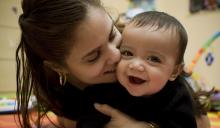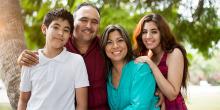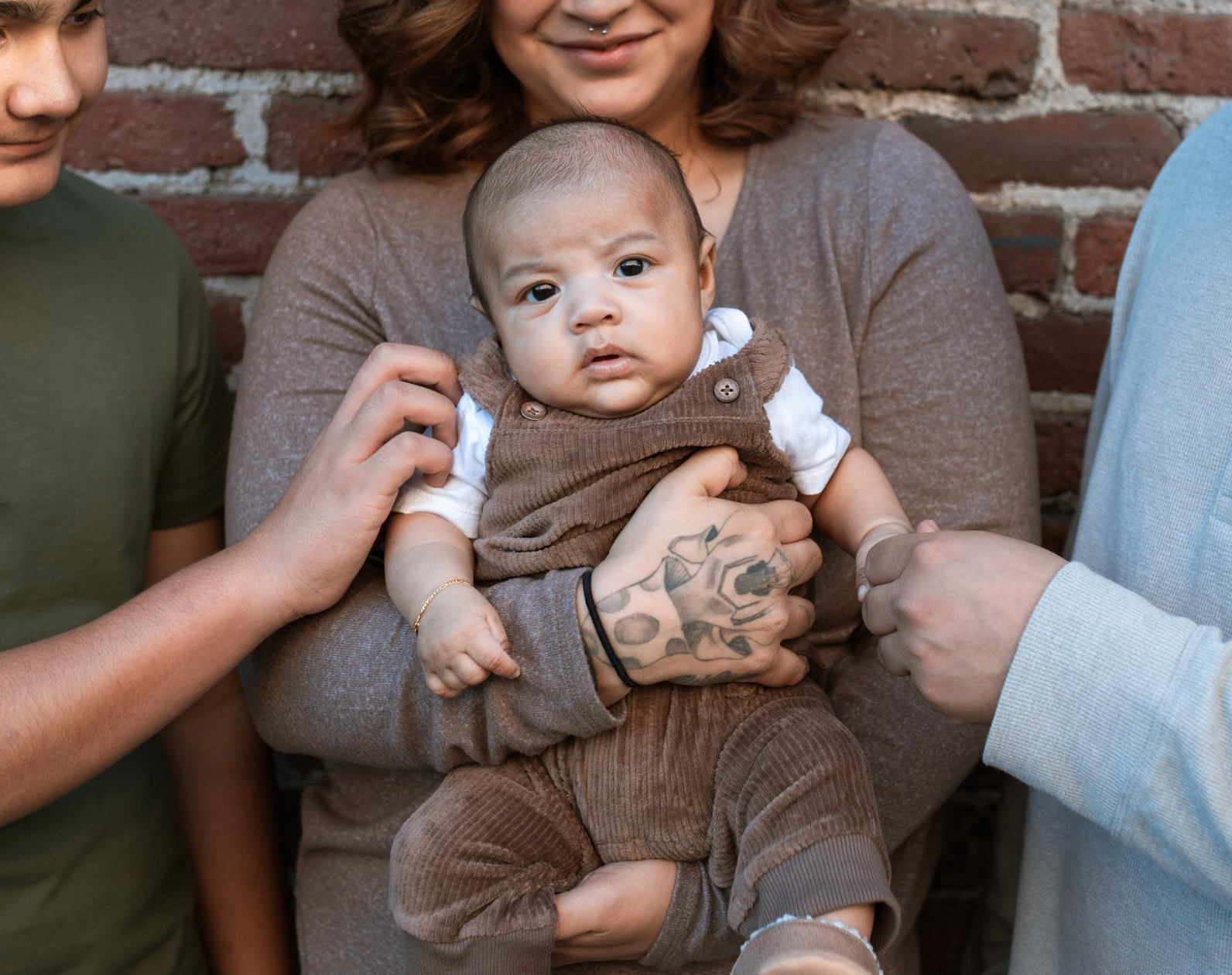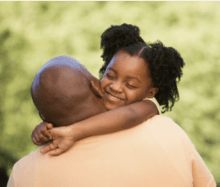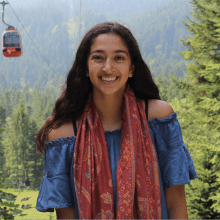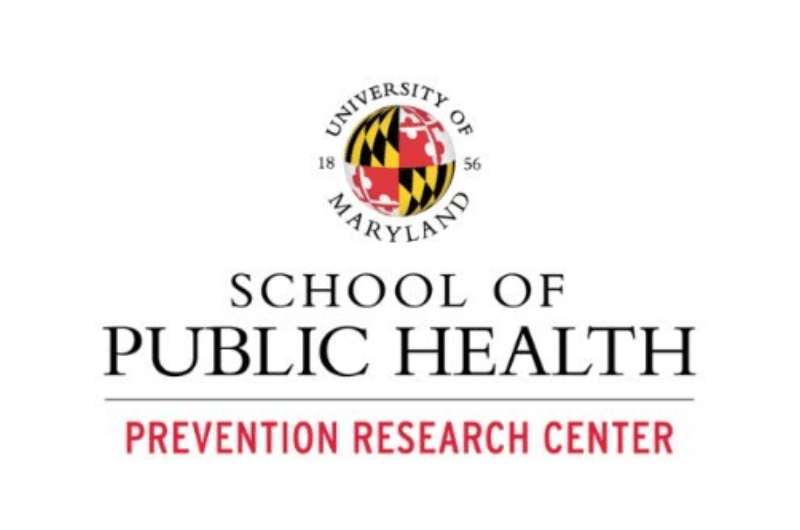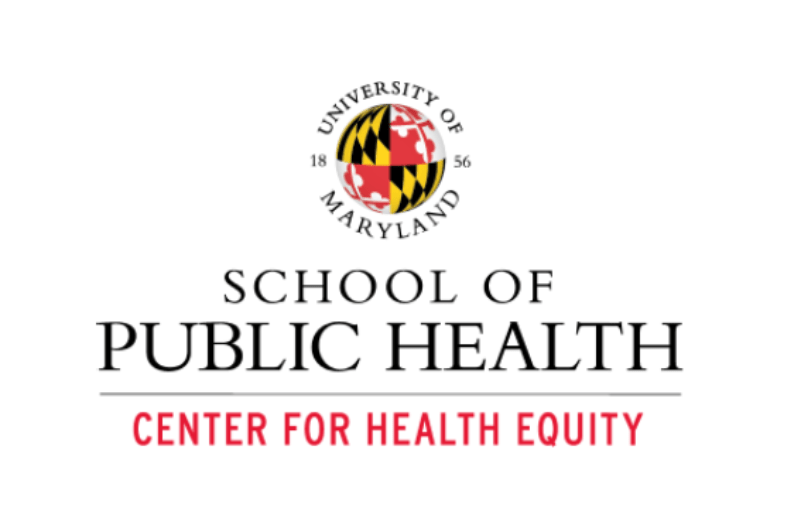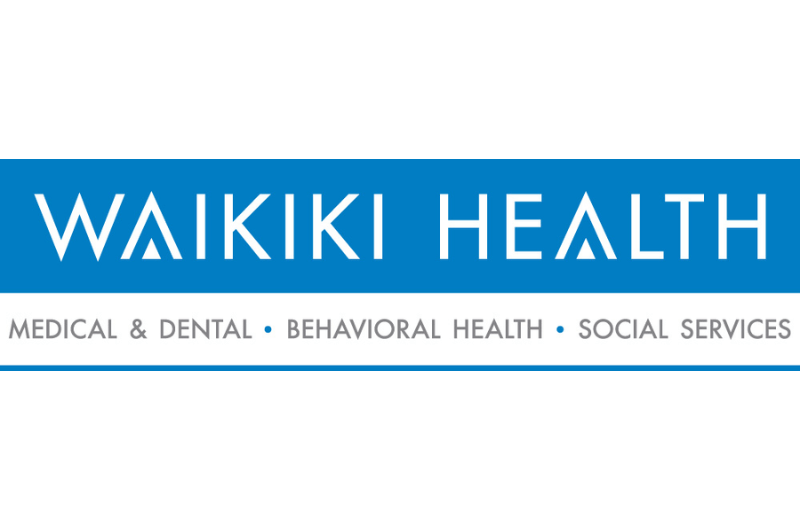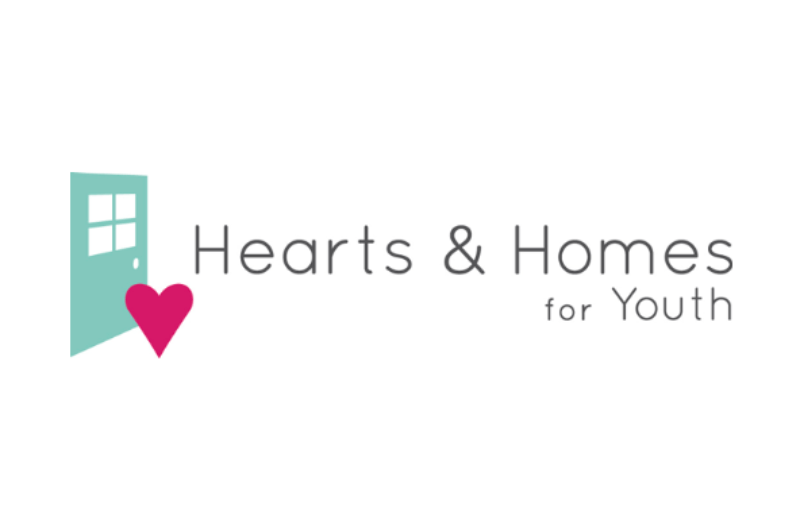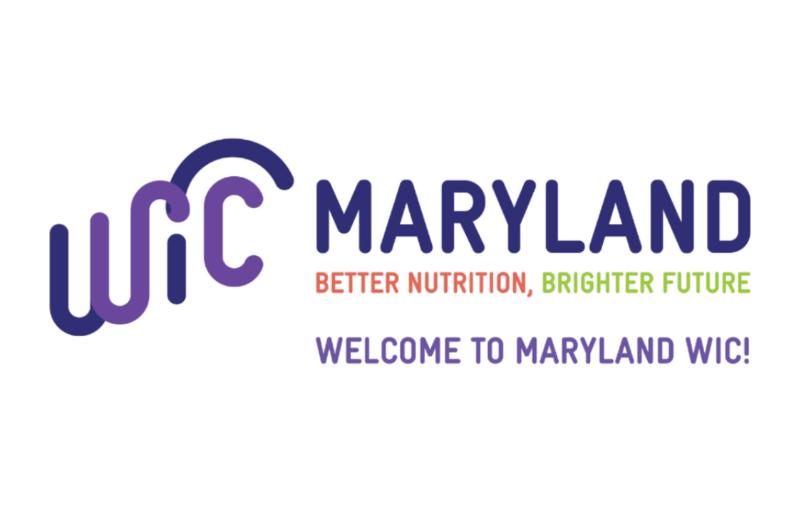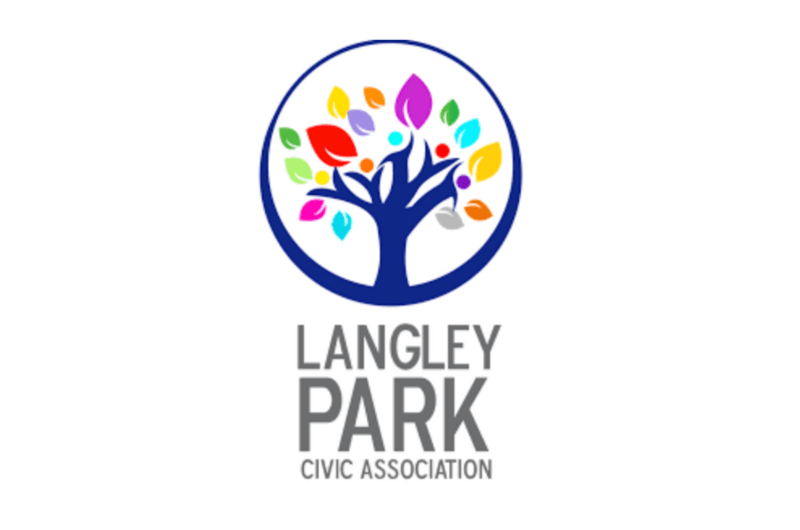Preventing Violence, Promoting Sexual Health and Helping Families Thrive
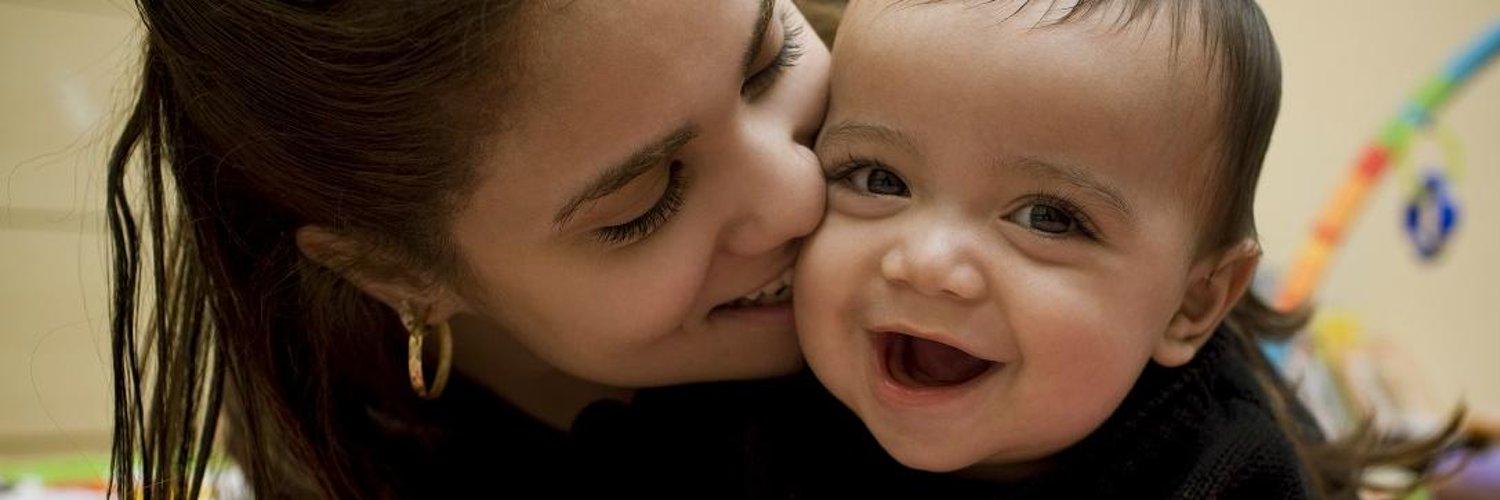
The Community THRIVES Lab conducts community-engaged, transformative health research at the intersection of family violence, early childhood, and adolescent sexual health intervention.
Department: Behavioral and Community Health
Director: Elizabeth Aparicio
Partnering with youth, families, and communities on research to improve health equity and bolster resilience, we aim to inform and test innovative approaches to improving adolescent sexual health and well-being, reducing unplanned and early pregnancy, nurturing young families, ending intergenerational cycles of child abuse and neglect, and intervening early with our youngest kids to help families thrive. This work takes a village.
If you have come here to help me, you are wasting your time. But if you have come because your liberation is bound with mine, then let us work together.
Transforming Four-Year Colleges and Universities to Promote Academic Success for Parenting Undergraduate Students
March 2024- Present
Principal Investigators: Dr. Elizabeth Aparicio & Dr. Svetlana Shpiegel (Montclair State University)
Funding: The Spencer Foundation
Community Partners: We have an extensive community based advisory council composed of scholars, community leaders, academic and non-profit representatives, and undergraduate students who are parents. Our community partners span across the United States and Canada.
This project seeks to understand the experiences, facilitators, and barriers impacting undergraduate students who are parents. It is a planning grant that will inform and design a larger study aimed at evaluating strategies and approaches to effectively support undergraduate students who are parents. This project spans across three universities including the University of Maryland, Florida State University and Montclair State University. Our goals are to build relationships, foster partnerships, and develop and sustain our advisory council. The findings will provide an evidence-informed context for approaches to support undergraduate students who are parents in their academic journeys and to help them thrive.
Rosie the Chatbot
September 24, 2021 — Present
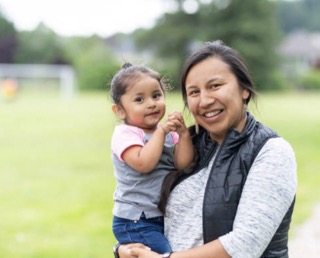
Principal Investigators: Dr. Elizabeth Aparicio & Dr. Quynh Nguyen (Associate Professor, Epidemiology)
Funding: NIH R01MD016037
Community Partners: We are grateful to our extensive community partners including but not limited to Oak Chapel Church, Dupont Park SDA Church, Lean On Us Unity, So What Else, Jessup Baptist Church, Black Physicians and Health Care Network, Metamorphosis Community, African American Health Program, Adventist Community Services of Greater Washington (ACSGW), Word of Faith Church of Jesus Christ, Inc., Chesapeake Church, Catholic Charities, City of Hyattsville, FRESHFARM, La Vie Mom, Zomee Breast Pumps, Pumps for Mom, People's Book, and Office of Community Engagement UMD.
Rosie is a chatbot that will enable easier navigation of health information to support expectant and new mothers of color the moment they need it. Rosie will be able to engage in live question-and-answer sessions to respond to frequent questions that moms have. Information provided will come from verified sources such as children’s hospitals, health organizations and government agencies to ensure accuracy. It will also be presented in a conversational style without the need to navigate through dozens of web pages in search of a specific credible answer. Rosie's development and use will be a tool of help to improve moms' and children's quality of life and health care outcomes.
The Ten Terp Plan for Sexual Assault Prevention: A Mixed Methods Evaluation of a Peer-Facilitated Sexual Assault Prevention Dialogue Pilot Program
January 2025 — Present
 PI: Swati Sah, MPH, Doctoral Candidate
PI: Swati Sah, MPH, Doctoral Candidate
Advisor: Elizabeth Aparicio, PhD
One in four women experience sexual violence during college with Greek-affiliation placing students at a higher risk of both victimization and perpetration. Researchers and practitioners have pointed to the potential of peer facilitation in addressing peer influence and social norms, both of which integrally shape fraternities and sororities. This dissertation pilot study will use a convergent mixed methods approach to assessing the feasibility, acceptability, and preliminary efficacy of a peer-facilitated, evidence-informed program promoting small group discussions about rape culture, bystander intervention, consent, and relationship behaviors. This study will significantly contribute to the literature on peer-facilitated and campus-based sexual assault prevention.
Carrying More Than a Pregnancy: A Longitudinal Multi- and Mixed Methods Analysis of Psychological Distress, Social Support, and Healthcare Trajectories among Sexual and Gender Minority Birthing People
June 2025 — Present
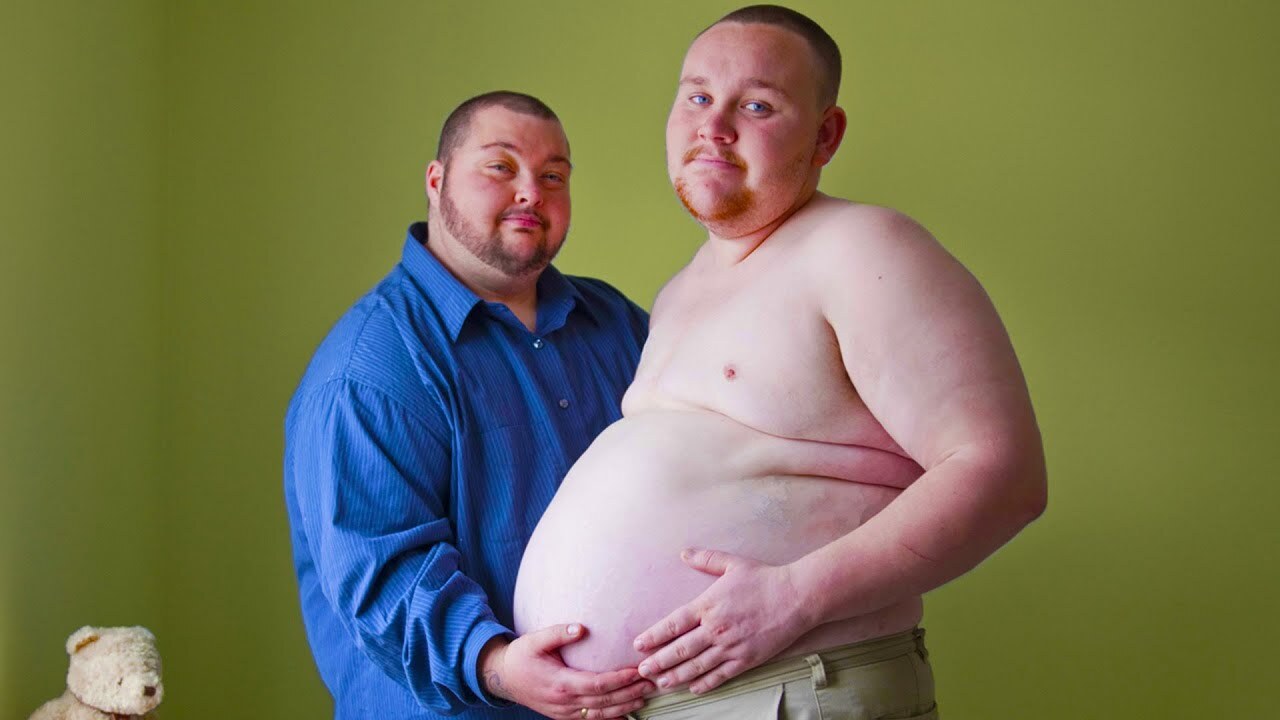
PI: Pond Ezra, MS, Doctoral Candidate
Advisor: Marie Thoma, PhD
This dissertation uses the Queer and Trans Perinatal Resilience Experiences and Gestation (QT-PREG) framework to explore how mental health, social support, and healthcare interactions evolve across pregnancy and postpartum for cisgender lesbian, gay, bisexual, or queer (LGBQ) individuals and transgender and nonbinary (TGNB) people. Using a longitudinal convergent mixed-methods design, the study analyzes patterns in stress, anxiety, and depression from the second and third trimesters through three months postpartum, alongside qualitative data on participants’ perceptions of social support and experiences navigating the healthcare system. The goal is to better understand how social support and healthcare interactions may buffer or exacerbate perinatal mental health symptoms among sexual and gender minority birthing people.
Next Chapter Project, Phase 1
April 1, 2018 — Present
Community Partner: Hearts and Homes for Youth (Melanie Geddings-Hayes, LCSW-C)
Funding: UMD Maryland Catalyst Fund
Teen mothers who are in foster care speak with great joy about becoming a parent, though it has many challenges, and express a strong desire to do things differently with their own children than what they experienced in their own families while growing up. In this community-engaged grounded theory study, we are partnering with youth, social worker, and caregiver experts to explore the experience of accessing and receiving parenting support and mental health support among young mothers in foster care.
Fostering Healthy Relationships
May 1, 2017 — Present
Community Partner: Hearts and Homes for Youth (Melanie Geddings-Hayes, LCSW-C)
UMD Partner: Prevention Research Center
Funding: UMD Department of Behavioral and Community Health, UMD Prevention Research Center, UMD Graduate School
Youth in foster care are 2-3 times as likely to become pregnant as a teen compared to their peers who are not in care and are at elevated risk for STI exposure. During this community-based participatory research project, we are partnering with youth, community, and university experts to conduct a needs assessment and create an innovative multi-level sexual health intervention for youth in foster care. Our current phase of the project involves examining the specific sexual health and mental health needs of LGBTQ foster youth.
Wahine Talk
July 1, 2020 — Present
Community Partner: Waikiki Health's Youth Outreach (YO!) Program Funding: HHS Office of Population Affairs
Young women who are homeless experience teen pregnancy at a rate five times greater than their housed peers and engage in myriad sexual risk behaviors (such as unprotected and transactional sex). Systems of care are often ill-equipped to meet their health and well-being needs. To address this gap in care, Wahine Talk was developed by Kent Anderson and his team at Waikiki Health and is run out of a youth drop-in center in Waikiki, a neighborhood in Honolulu, HI with high rates of youth homelessness. Young women are invited to participate in four program components delivered by a team of interdisciplinary providers (social work/public health/nursing): basic needs and social services; peer mentoring; sexual health education groups; and sexual healthcare. Wahine Talk is an incentivized healthcare program: youth receive a cell phone upon entry to facilitate program connectedness, databoosts when they participate, and a second, upgraded cell phone if they complete a program checklist. To date, Wahine Talk has served 68 young women aged 14-22 years and followed up on key sexual health outcomes for 12 months following the conclusion of the intervention. Watch our Wahine Talk film and read our study publications here: go.umd.edu/WahineTalkProducts.
COMPLETED PROJECTS
Beyond the Bench: Evidence-Based Strategies for Equitable Clinical Research Engagement
November 2024 — December 2025
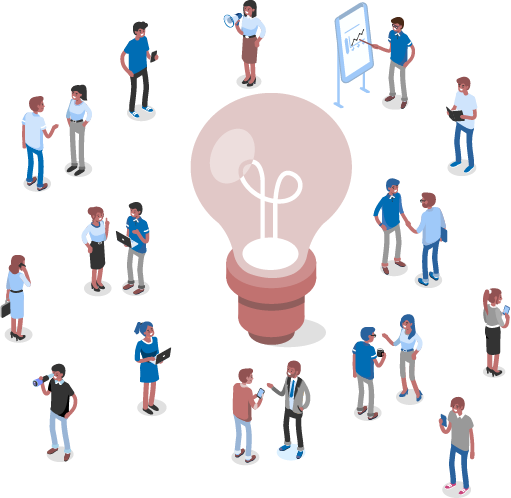 PI: Carson Peters, MPH, Doctoral Candidate
PI: Carson Peters, MPH, Doctoral Candidate
Advisor: Elizabeth Aparicio, PhD, MSW, LCSW-C
As clinical research implications shape public health practice, there is a need for inclusive research engagement among key populations. However, literature addressing strategies to overcome barriers to maternal and child health clinical research remains limited, with nascent evidence-based strategies. This dissertation examines both Community-Academic Partnerships and social media as recruitment
methods to enhance clinical research engagement, with a focus on key populations. The project is nested in a maternal and child health clinical research study entitled Rosie the Chatbot. This dissertation utilizes a multimethod approach, with reflexive thematic data analysis and secondary bivariate data
analysis. The findings will contribute to best practices in clinical research engagement, informing research design and investigators’ approaches to promote inclusive clinical research.
Understanding the Experiences of Low-Income Mothers Who Navigate the Current Food System For Their Households
October 2024 — December 2025
 PI: Leena Moses, MPH, Doctoral Candidate
PI: Leena Moses, MPH, Doctoral Candidate
Advisor: Elizabeth Aparicio, PhD, MSW, LCSW-C
Food insecurity affects over 10% of U.S. households, posing significant challenges for families as they make difficult decisions to reduce food intake. The relationship between food insecurity and adverse child health outcomes highlights the urgent need to identify factors that mitigate its negative effects. This qualitative dissertation will explore the experiences of low-income mothers who regularly use food pantries in Maryland, using semi-structured interviews conducted in person and over Zoom. Findings from the thematic analysis will provide insight into how mothers navigate the food system and identify supports that can strengthen food security among households with children.
Muslim Mental Healthcare Receipt & Suicidality Study
Spring 2023 - Jan 2024
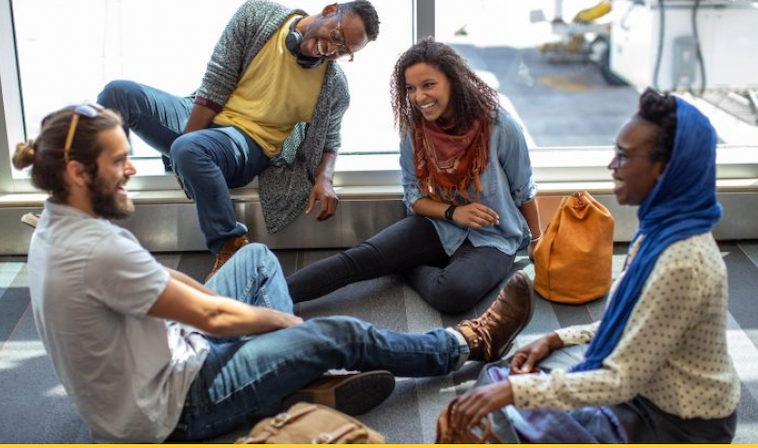
Co-Principal Investigators: Maisha Huq & Dr. Elizabeth Aparicio
Recent evidence shows US Muslims are attempting suicide at two times the rate of other religious groups (excluding those without affiliation), demonstrating the highest rate of the religious groups. It is possible that delays in receiving professional mental healthcare may be contributing to the disproportionate suicide attempts among US Muslims. Little research has examined reasons for delays in receiving professional mental healthcare and the conceptualization of suicidality among US Muslims, however. This work aims to explore delayed professional mental healthcare receipt, conceptualization of suicidality, and how to develop/adapt family-level suicide prevention gatekeeper training interventions for US Muslims using a co-design approach.
Collaborative Co-design of Portable Work Benefits Policy Model and Prototype based on Direct Care Workers’ Needs, Attitudes, and Beliefs
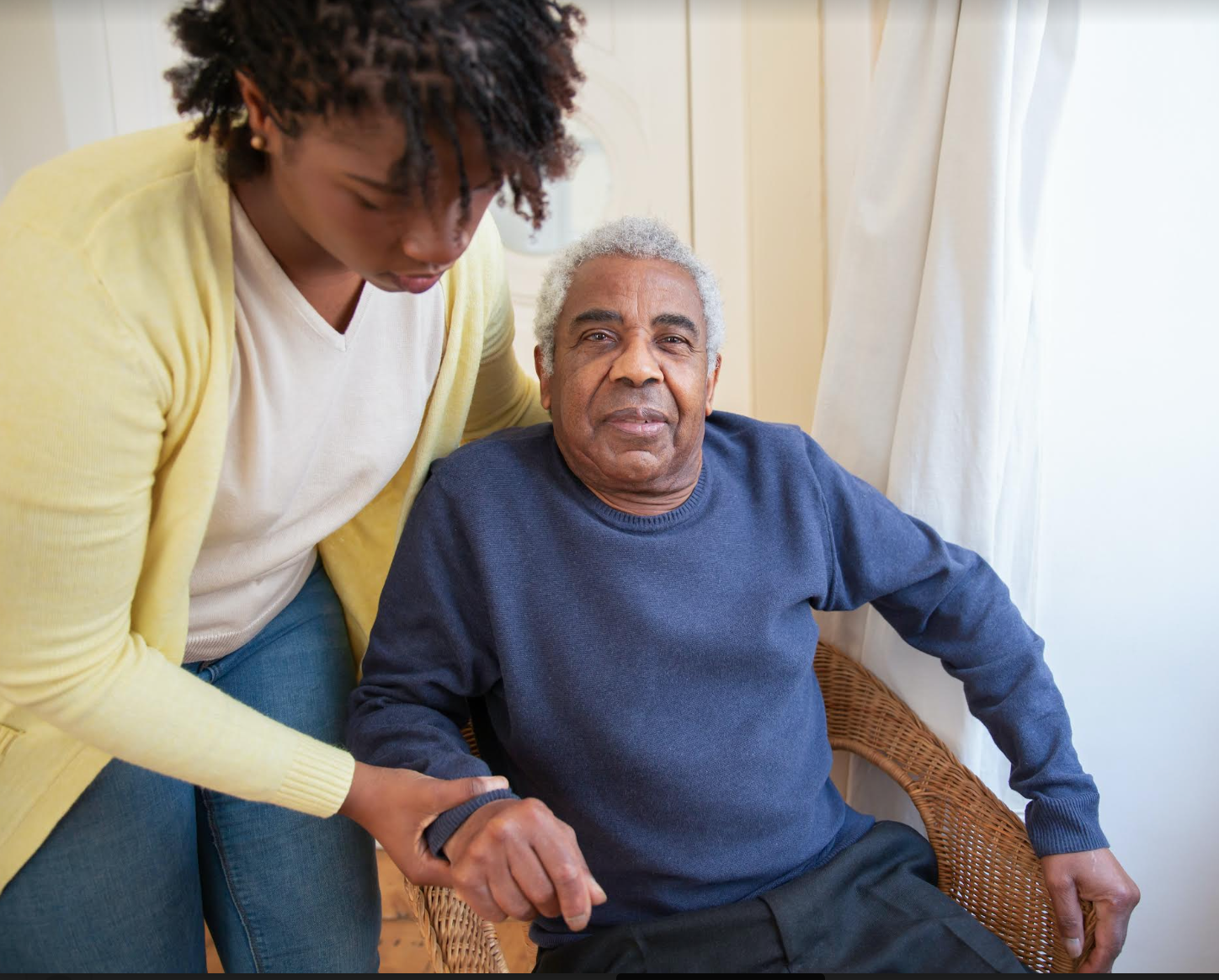 Dissertation Research Supervised by Dr. Aparicio
Dissertation Research Supervised by Dr. Aparicio
PI: Charlene Kuo, PhD Candidate
Advisor: Liz Aparicio, PhD
Turnover is high among direct care workers who provide essential care to people with disabilities and frail elders and keep health care costs low through their labor. Charlene’s dissertation invites direct care workers to explore ways to improve their work conditions, compensation, and long-term health by co-designing a portable work benefits policy model and delivery platform prototype based on their self-identified needs, attitudes, and beliefs. Portable work benefits refer to benefits that travel with employees when they change jobs, are prorated so multiple clients can contribute, and are accessible to all workers.
Application of a Multi-Method Approach to Identify Americans’ Historical and Contemporary Sentiments Toward the Uptake of Emergency Contraceptive Pills

Dissertation Research Supervised by Dr. Aparicio
PI: Michelle Jasczynski, PhD
Advisor: Liz Aparicio, PhD
Dr. Jasczynski completed her dissertation in October 2022, analyzing trends in attitudes, knowledge, and usage of emergency contraceptive pills (ECPs) using a nationally representative survey. Her findings align with prior research indicating ECPs are underutilized in the United States and there is a need for further evaluation of the knowledge, attitudes, and experiences among women and people who can become pregnant to understand what motivates uptake and what motivates the underutilization. Identifying barriers to access and use are essential as the reproductive health landscape in the United States continues to rapidly change post-Dobbs. ECPs play a critical role in addressing new barriers and health effects of diminished reproductive health equity and justice.
Adapting a Cancer Control Intervention for African American Women Below Screening Age: A Co-Design Approach

Dissertation Research Supervised by Dr. Cheryl L. Knott
PI: Maisha Huq, PhD
Advisor: Cheryl L. Knott, PhD
Younger African American women (i.e. below screening age)disproportionately suffer the most adverse outcomes from early onset breast cancer. Yet, there is a dearth of age-appropriate breast cancer educational interventions for younger African American women who are not yet eligible for mammograms. The study entailed an adaptation of Project HEAL, an evidence-based breast cancer educational intervention for African American women of screening age,
to be targeted to African American women below screening age using a systematic process led by two implementation science frameworks and a virtual co-design approach. The adaptation process led to “Black and Breasted (B&B)”, an Instagram and beauty brand partnership- -based breast health education tool prototype. health education tool prototype.
In Their Own Words: A Multi-Analytic Method Qualitative Study Exploring the Mental Health Needs and Experiences of a Diverse Group of Young, Bisexual Women in Context
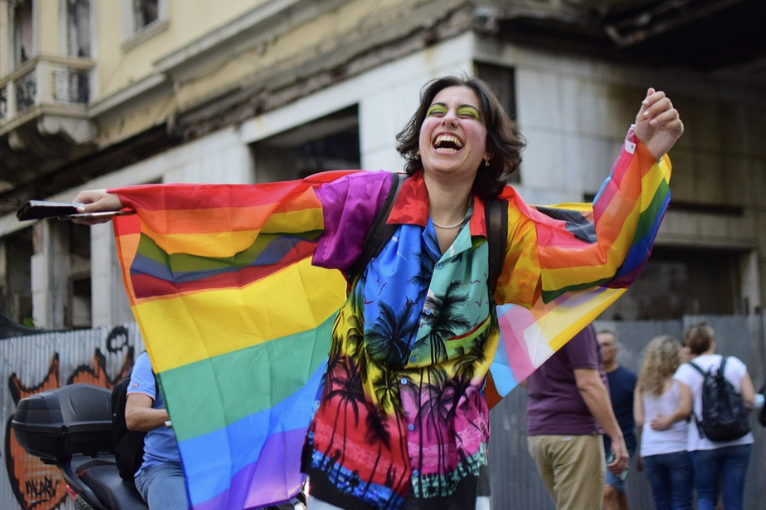
Dissertation Research Supervised by Dr. Aparicio & Dr. James Butler III
PI: Jennifer Robinson, PhD
Advisor: Liz Aparicio, PhD & James Butler III, PhD
Young bisexual women experience mental health and sexual and reproductive health disparities compared to straight and lesbian women, but there is a current lack of understanding of what is driving these disparities. This study aimed to explore both the mental health experiences and the intersection of mental health and sexual and reproductive health through semi-structured and in-depth interviews with young bisexual women.
Social Network Influences on Infant Feeding Decisions Among Latina Women
Dissertation Research Supervised by Dr. Aparicio
PI: Amara Doig, PhD
Advisor: Liz Aparicio, PhD
Infant feeding practices have important long-term health impacts but few families, particularly low-income and minoritized families, in the US meet the current feeding recommendations. Most current studies focus on mothers as the sole decision makers, but maternal social networks can influence these decisions. This study sought to determine who influences infant feeding decisions, what information they share, and how mothers make their decisions. If you would like to learn more, please contact her at acdoig@umd.edu.
Impact of the COVID-19 Pandemic on Expectant and Parenting Foster Youth
October 1, 2021 — Dec 31, 2022
Community Partner: Healthy Teen Network
University Partner: Montclair State University
Funding: Annie E. Casey Foundation
The COVID-19 pandemic has had devastating impacts on transition age foster youth. This study examined how young parents in and aging out of the foster care system are navigating this difficult time, in order to inform practice and policy with this specialized group. This study involved participatory action methods, including PhotoVoice groups and focus groups, to uplift the experiences of parenting foster youth.
African American Father-Daughter Sexual Health Communication
Dissertation Research Supervised by Dr. Aparicio
PI: Olivia Kachingwe, PhD (Alumni)
Advisor: Liz Aparicio, PhD
African American youth and young adults living in the United States are disproportionately burdened by HIV/AIDS, and when compared to women of other races and ethnicities, African American women have the highest rate of chlamydia, gonorrhea, and herpes simplex virus 2. Though sexual health communication is a well-established protective factor against sexual risk-taking behaviors, African American father-daughter sexual health communication is under-researched. Thus, this study seeks to understand the process of African American father-daughter sexual health communication, including the topics discussed, pertinent dyadic relationship dynamics, and perceived impact on sexual behavior.
Led by Dr. Elizabeth Aparicio, our lab takes a collaborative approach to intervene upon some of our communities' most challenging social determinants of health. We work to both challenge structural inequities and nurture individuals', families', and communities' innate ability to thrive. This work requires teams of dedicated community-based and campus-based researchers. Below are our current research team members.
Elizabeth Aparicio, MSW, PhD
Director
Dr. Aparicio is a tenured Associate Professor in the Department of Behavioral and Community Health at the University of Maryland's School of Public Health. Trained as a clinical social worker, Dr. Aparicio served the community in Washington D.C. and Maryland for nearly a decade as a trauma-focused licensed clinician, providing individual, family, and group therapy to children and adolescents. Dr. Aparicio focuses on improving health equity through affecting individual and system-level change to improve youth and community well-being via informing and testing interventions in adolescent sexual health, teen pregnancy, and parenting; early childhood intervention; and child maltreatment prevention. She is a dedicated mentor and teacher, serving as a qualitative and mixed-methods methodologist and content expert on dozens of PhD dissertation and MPH project committees, and teaching qualitative and mixed methods research to graduate students and community health engagement to undergraduate students.
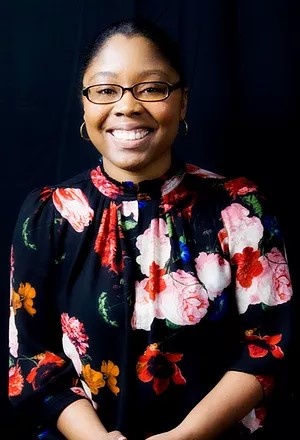
Alexis S. Hunter, MA (she, her, hers)
PhD Student in Behavioral and Community Health
Projects: Rosie the Chatbot
Alexis is a Teaching Assistant and a PhD student in the Department of Behavioral and Community Health. Alexis earned her BA in Psychology from Michigan State University with specializations in Health Promotion and Bioethics, Humanities, and Society. She completed her MA in Community Psychology and Social Change at the Pennsylvania State University. Prior to joining the University, she worked at Wayne State University with health and racial disparities in chronic diseases (asthma, diabetes, and HIV/STI). Alexis is passionate about her work within health and racial disparities, substance use, sexuality, and HIV/AIDS prevention and intervention. She has extensive experience as a qualitative researcher, working inside urban and rural communities. She has worked as a Research Project Manager as well as a HIV test counselor and prevention specialist at the University of Michigan. She is interested in finding creative and innovative ways to use community engaged research to structure socio-behavioral and sexual health interventions for adolescent and emerging adults to address the gaps that exist for understanding sexual and gender minority health disparities.
Michelle Jasczynski, Ed.M., PhD
Projects: Rosie the Chatbot, Fostering Healthy Relationships, COVID-19 Parenting, Wahine Talk, Next Chapter Project
Michelle Jasczynski is a recent graduate from the Department of Behavioral and Community Health's doctoral program. Her dissertation research focused on the willingness to use and uptake emergency contraceptive pills (ECPs) in the United States, reproductive justice, and promoting inclusive practices for sexual and gender minorities in sexual and reproductive health studies. Her research broadly focuses on health equity promotion for youth who face marginalization, stigma, and barriers to healthcare due to their identity and experiences.
 Christina Ross, PhD
Christina Ross, PhD
Dr. Christina Ross is a health equity researcher focused on promoting adolescents’ sexual and reproductive health (SRH). Her research focuses on understanding how youth-serving professionals can address adolescents’ (SRH) needs, promote their positive development, and significantly lower the disproportionate rates of sexually transmitted infections and unintended pregnancies. Dr. Ross’ goal is to develop and implement technology-based, culturally sensitive, trauma-informed interventions to address the elevated rates of STIs and unintended teenage pregnancy that affect adolescents of color and ensure vulnerable youth have equal access to quality health care. Her most recent study examined female adolescents’ perspectives regarding their SRH needs while in foster care. Dr. Ross is currently working on a study to develop, implement, and test the feasibility and efficacy of a culturally sensitive trauma-informed mobile health approach to promote SRH and sexual self-efficacy among African American adolescents.
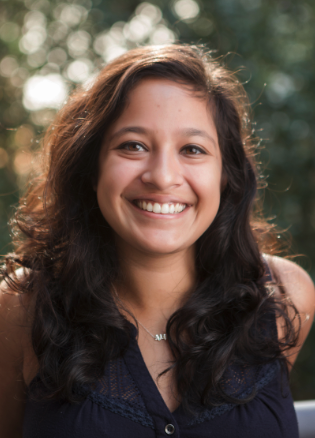 Swati Sah, MPH
Swati Sah, MPH
PhD Student in Behavioral and Community Health
Projects: Fostering Healthy Relationships, Next Chapter
Swati Sah is a PhD student in Behavioral and Community Health and began working with the THRIVES lab in Fall 2021. She received her MPH at New York University, during which she spent two months at the University of Cape Town exploring the stigma around abortion, coercive contraceptive practices of medical clinics on immigrant woman, and delays and barriers in the judicial system preventing appropriate handling of sexual assault and domestic violence cases. Following her MPH, she worked in suicide prevention and as a community contact tracer for the NYC COVID-19 response. Through this work, her primary research focus narrowed to understanding power-based violence as it relates to structural policies. She is also currently the Sexual Assault Prevention Graduate Coordinator at the Dept. of Fraternities and Sororities at UMD.
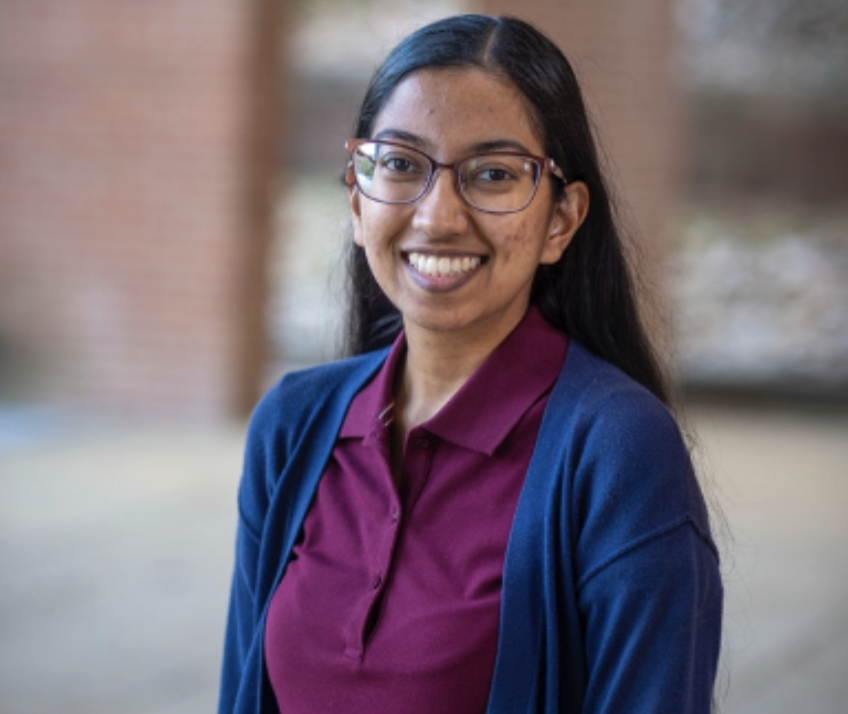
Leena Daniel, MPH
PhD Student in Behavioral and Community Health
Projects: Rosie the Chatbot
Leena Daniel is a doctoral student in the Department of Behavioral and Community Health. She received her Master of Science in Public Health (MSPH) in Human Nutrition degree from the Johns Hopkins Bloomberg School of Public Health and her Bachelor of Science (BS) in Nutrition from the University of Maryland, College Park. She interned for two years at the Food and Drug Administration in College Park, where she worked with strategic communications in the Center for Food Safety and Applied Nutrition. While at Johns Hopkins, she conducted formative research in Baltimore City on the challenges faced by a non-profit grocery store. She is currently a graduate teaching assistant in the Behavioral and Community Health department for HLTH 491: Community Health Internship. Her current research seeks to understand the predictors and outcomes of food insecurity for households with children. If you would like to learn more, please contact her at ldaniel1@umd.edu.
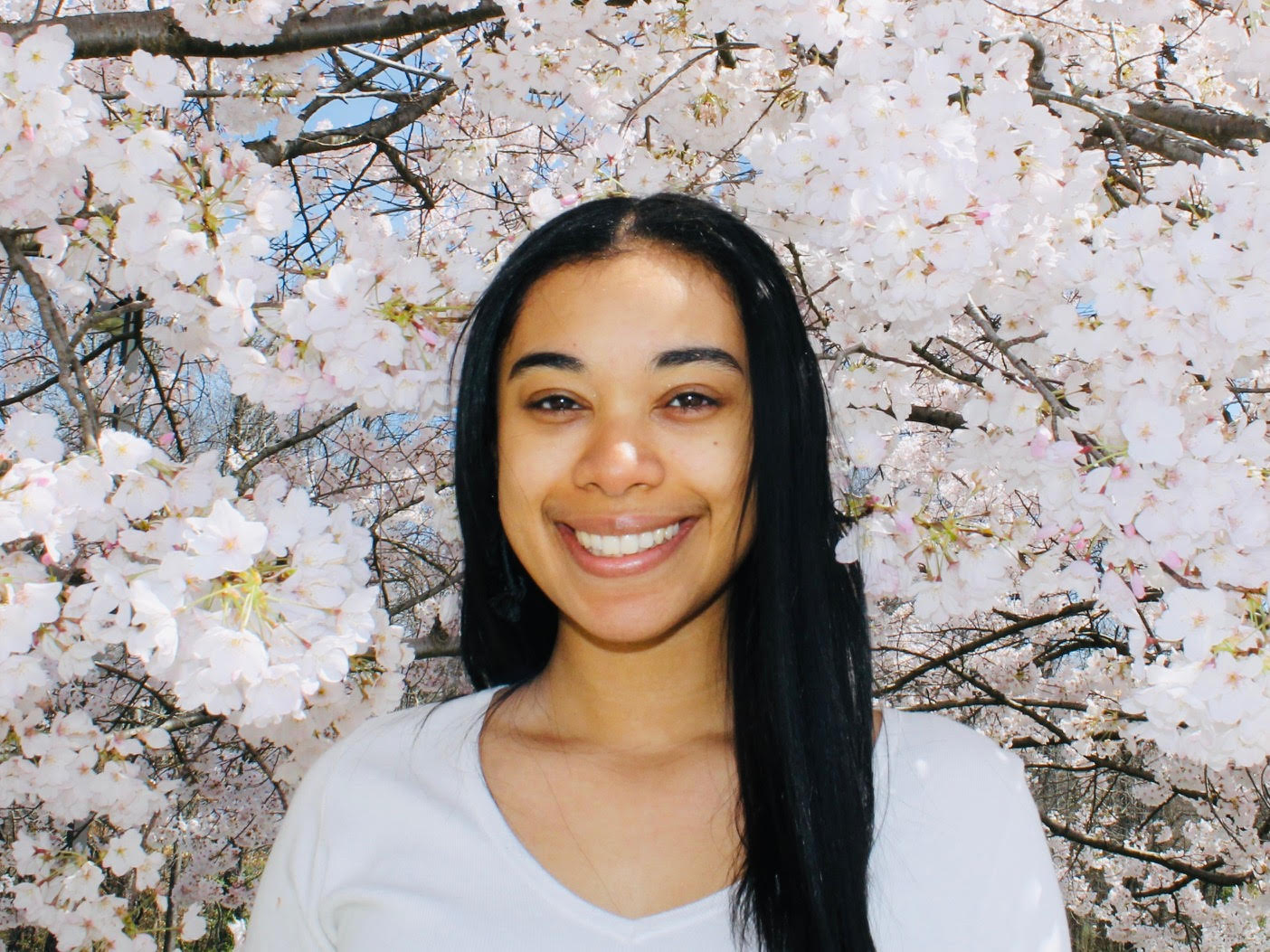 Carson Peters, MPH
Carson Peters, MPH
PhD Student in Behavioral and Community Health
Projects: Rosie the Chatbot
Carson Peters (she/her) is a PhD student in the Behavioral and Community Health Department at the
University of Maryland, School of Public Health. Carson graduated from Grinnell College with a Bachelor
of Arts in the Biology of Global Health and a Master of Public Health in Epidemiology from the University
of Iowa, College of Public Health. She is passionate about community engagement and increasing the
diversity of marginalized communities in research. Carson’s research portfolio includes sexual and reproductive health, infectious diseases, and chronic disease management. She has conducted preliminary research in Brazil, India, and South Africa focused on infectious diseases and program evaluation research in Zambia. Her research experiences include working at the National Institute of Health’s National Institute of Allergy and Infectious Diseases and Clinical Center, Harvard Global Health Institute, and the Harvard School of Public Health. She has also worked on Capitol Hill for the late Honorable Congressman John Lewis, related to her public policy and advocacy interests.
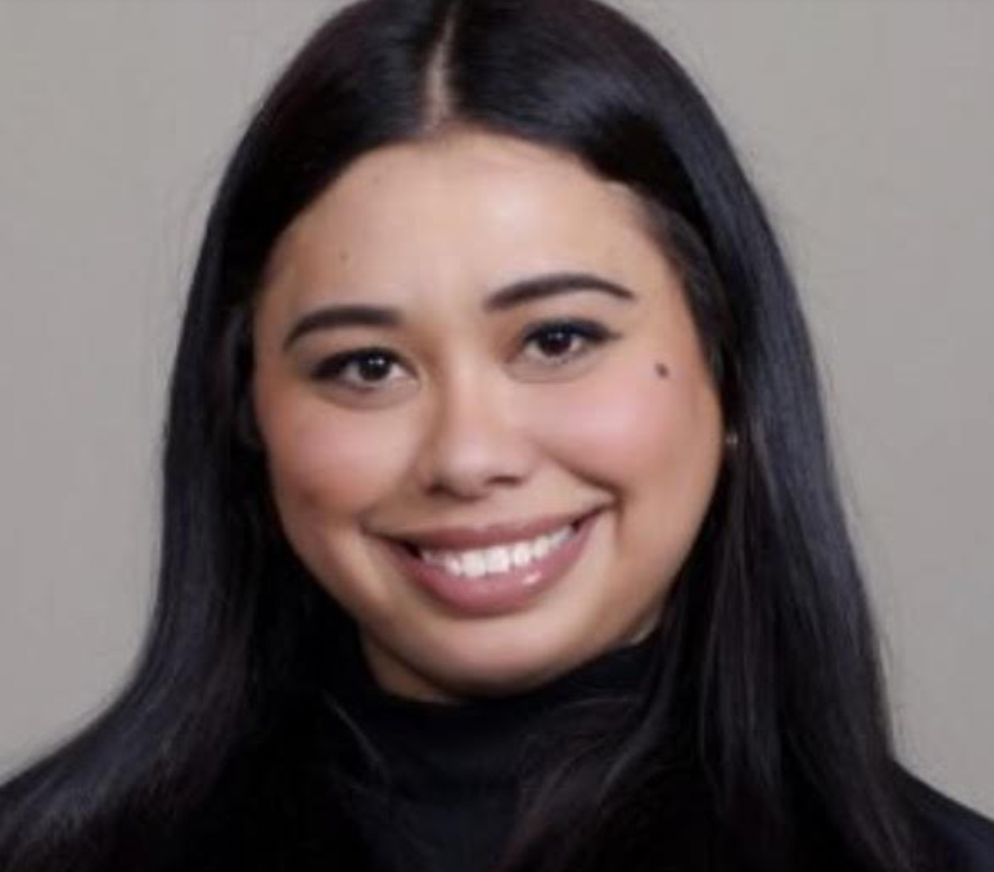 Valerie Aldana, MPH
Valerie Aldana, MPH
PhD Student in Behavioral and Community Health
Projects: Rosie the Chatbot
Valerie Aldana, MPH, is currently pursuing her PhD in the Department of Behavioral and Community Health at the University of Maryland, School of Public Health. Prior to her doctoral studies, she earned her undergraduate degree in Biological Sciences and International Business from Florida International University in 2018. Afterward, she worked in cancer research at the University of Miami's Sylvester Comprehensive Cancer Center and the Baptist Hospital's Miami Cancer Institute until 2022. During her Master's program, completed at Florida International University's Robert Stempel College of Public Health & Social Work in 2020, she focused on public health, particularly in the field of epidemiology. Her current research interests revolve around cancer health disparities and their impact on minority communities.
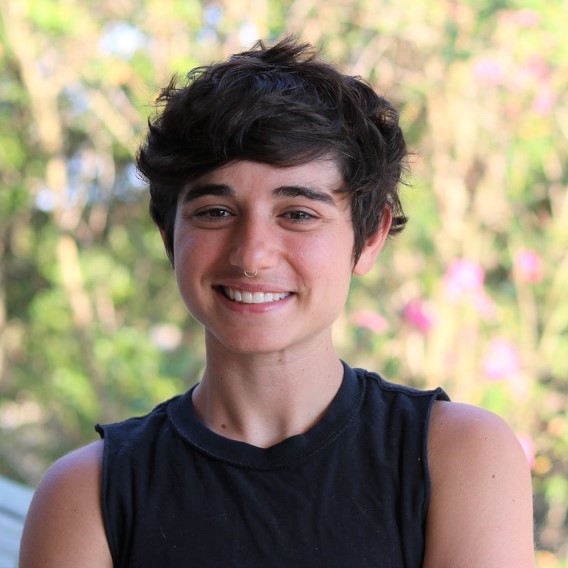 M. Bishop, MPH, PhD
M. Bishop, MPH, PhD
Projects: Rosie the Chatbot
M. Bishop, PhD, is a postdoctoral research fellow in the department of Family Science at the University of Maryland, College Park. Their research leverages approaches at the nexus of developmental science, public health, and demography to understand the health and wellbeing of sexual and gender minority people across the life course. Dr. Bishop is interested in the developmental and intersectional contexts that shape relations between identity development, minority stress, and health among sexual and gender minority youth. Dr. Bishop’s current NIH-funded research examines developmental differences in alcohol use and misuse among youth at the intersection of gender, sexuality, and race/ethnicity. The goal of Dr. Bishop’s research is to inform programs and policies aimed at eliminating inequities experienced by sexual and gender minority people. Dr. Bishop holds a Ph.D. in Human Development and Family Science from the University of Texas at Austin.
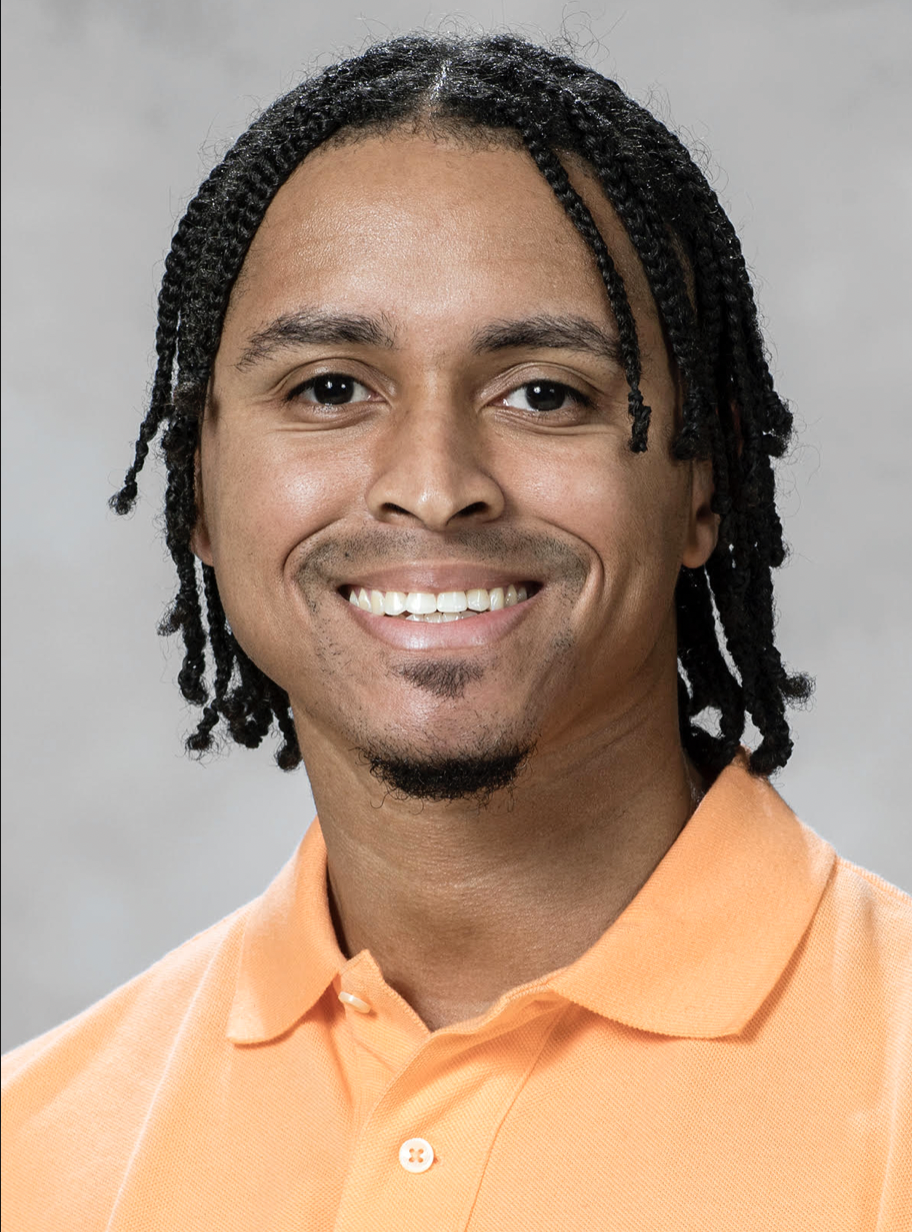 Bryan Shannon, MPH
Bryan Shannon, MPH
Projects: Rosie the Chatbot
Bryan Shannon is a graduate teaching assistant and a PhD student in the Department of Behavioral and Community Health. He received his BS in Health Education and Promotion from Oklahoma State University and received his Master of Public Health degree from the University of Central Oklahoma where he served as a graduate research assistant and mentor for many research teams within the department. Bryan is passionate about human sexuality and men's health, particularly in African Americans. His research portfolio includes infectious diseases, substance use, and nutrition. Bryan enjoys music, watching football and exercising. Bshanno3@umd.edu
David J. Hawthorne, PhD David J. Hawthorne is a PhD student the Department of Behavioral and Community Health. Prior to enrolling at UMD, David worked as a Research Coordinator in the Department of Health Studies at American University where he managed several research projects, including a NIH-funded study on minority stress among sexual and gender minorities, a mindfulness intervention for college students to reduce heavy episodic drinking, and an ecological momentary assessment examining disordered eating in young men. In addition to working with the Community Thrives Lab, David was a graduate research assistant with UMD's Prevention Research Center where he provided research and administrative support to the Center's projects including an intervention addressing drug-sex linked behaviors for men in substance abuse therapy, and an LGBTQ+ cultural competency training program for mental health providers and their organizations. David completed his undergraduate studies at Howard University and his Master's at American University. If you would like to learn more about David and his research interests, please contact David at davidjh@umd.edu.
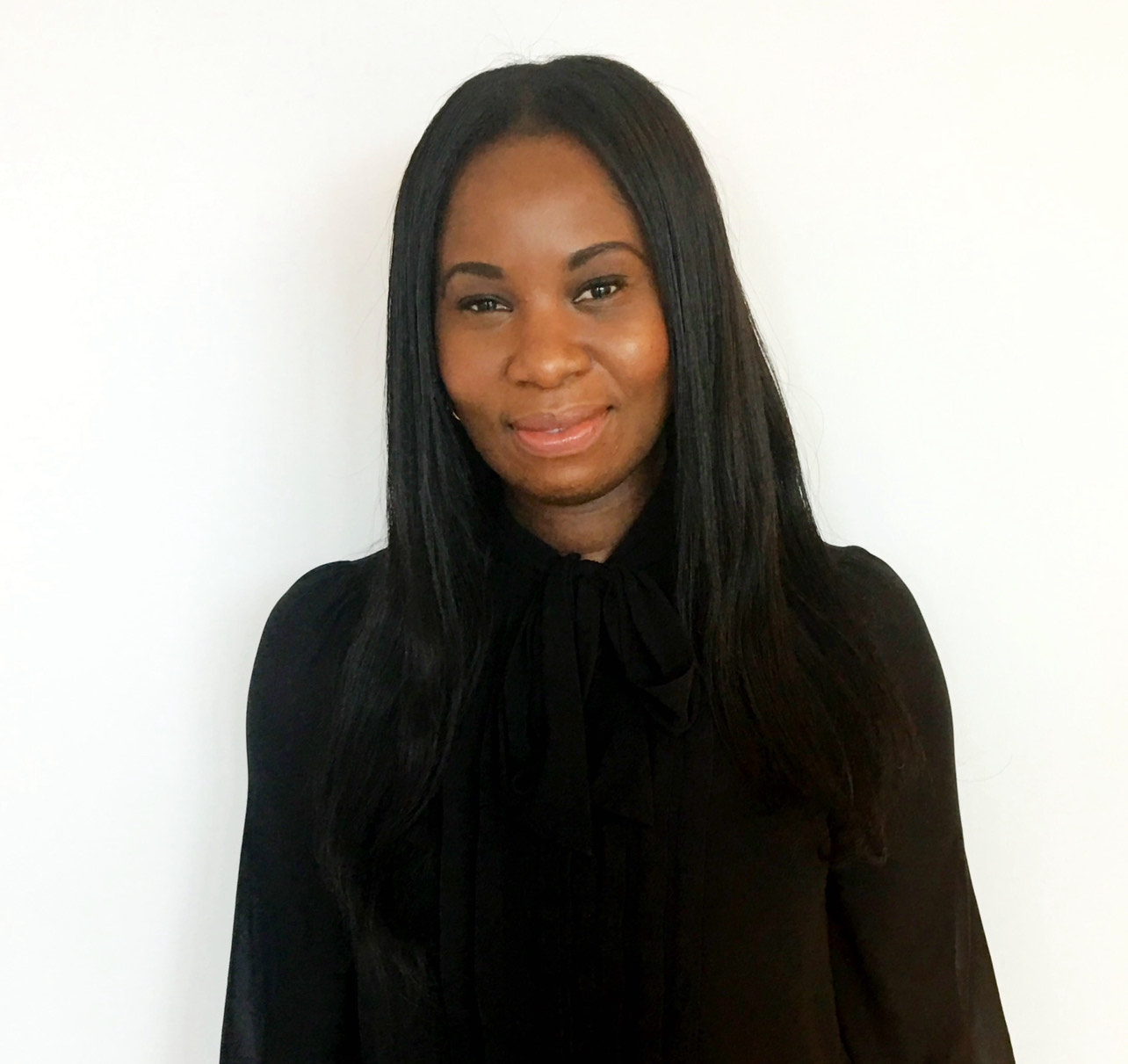 Sharon McCarthy, MPH, MSW
Sharon McCarthy, MPH, MSW
PhD Student in Behavioral and Community Health
Sharon McCarthy is a PhD student in the Behavioral and Community Health Department at the University of Maryland. She holds a dual Master's Degree in Public Health and Social Work from the University of Pittsburgh, concentrating in Behavioral Community Health Sciences and Medical Social Work. Sharon's diverse experience spans federal, state, and nonprofit sectors, including positions at the NIH, the New Jersey Department of Health, and the American Public Health Association, which have grounded her in public health social work. Her fellowship with the UCLA Minority Training Program in Cancer Control Research ignited her passion for cancer research. Sharon's research interests focus on reproductive health, women’s health, and enhancing cancer care quality along the continuum of care to improve health outcomes. She is particularly dedicated to health equity and health services research, with a strong emphasis on cervical and ovarian cancer screening in underserved populations.
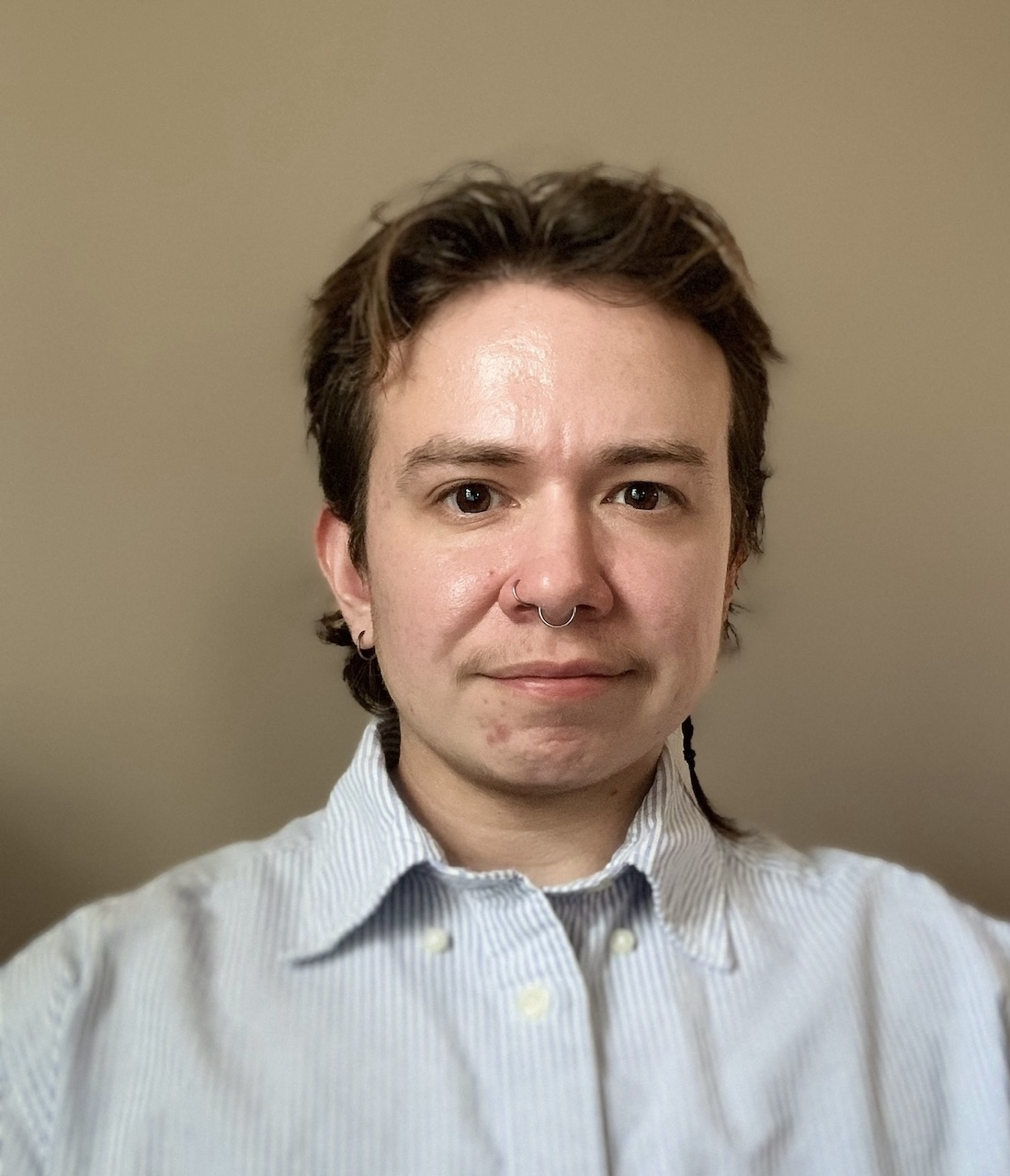 Pond Ezra, MS
Pond Ezra, MS
PhD Student in Behavioral and Community Health
Pond Ezra is a third-year doctoral candidate in Family Science whose research focuses on pregnancy, birth, and parenting experiences among gender minorities. Specifically, they are interested in how transgender parents, particularly seahorse dads, navigate parenting roles after birth; the contexts in which gender dysphoria affects pregnancy and birthing experiences; and the contextual factors that may contribute to trajectories in mental health across the perinatal period among gender minority people. Additionally, Pond works on related projects that examine sexual socialization messages being sent and received by sexual and gender minority youth in heterosexual-headed families.
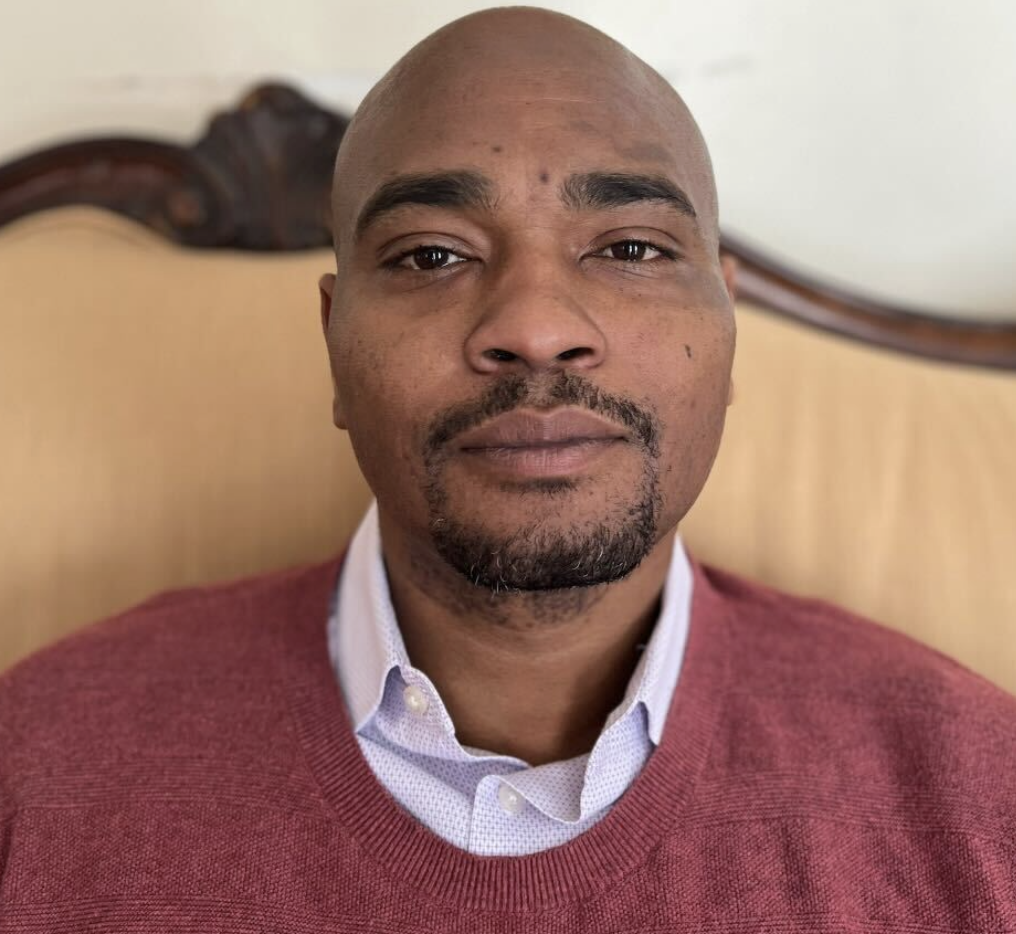
Kenan Jedi Zamore, MPH
PhD Student in Behavioral and Community Health
Kenan is a PhD student the Department of Behavioral and Community Health. He is an Epidemiologist focused on population-level health dynamics. His interests include injury epidemiology, behavioral health/SUDs, health disparities and informatics. Kenan is focused on applying public health surveillance techniques to non-traditional public health problems (most notably violence prevention and substance misuse disorders) and facilitating the effective dissemination of timely and reliable surveillance data to inform public policy and intervention efforts, and to attack barriers to the routine exchange of vital data.
 Wenxi Yu, MS
Wenxi Yu, MS
PhD Student in Behavioral and Community Health
Wenxi Yu is a Teaching Assistant and PhD student in the Department of Behavioral and Community Health at the University of Maryland, School of Public Health. She earned her Bachelor of Science in Nursing Studies and Master of Science in Global Health from King’s College London. Before joining UMD, Wenxi worked in health policy, healthcare management, and health education in the Medical Affairs Department of a tertiary hospital in China, where she collaborated with healthcare professionals and the local community on quality improvement, patient safety, and health promotion initiatives. Her research interests focus on adolescent and mental health, particularly within Asian populations, as well as substance use, women’s empowerment, and gender-based violence. She is passionate about developing culturally sensitive interventions to support the mental well-being of adolescents and emerging adults and to reduce health disparities. If you would like to learn more, please get in touch with her at wenxiy@umd.edu.
 Amani Wynter, MPH
Amani Wynter, MPH
PhD Student in Family Science
Amani Wynter is a PhD student in Maternal and Child Health Research at the University of Maryland School of Public Health. Her work focuses on the fairness, transparency, and equity implications of artificial intelligence in maternal and child health research. She is particularly interested in how predictive models and health algorithms may reinforce racial and structural disparities in pregnancy-related outcomes, and how more ethical and accountable approaches can support safer, more equitable care. Amani earned her Bachelor of Science in Health Science from Boston University and her Master of Public Health in Epidemiology from Rutgers University. She is also a 2025 Robert Wood Johnson Foundation Health Policy Research Scholar, a distinction that reflects her commitment to advancing equitable and evidence-based health policy. Her training and interests bridge epidemiologic methods, health policy, and the responsible use of data in public health research.
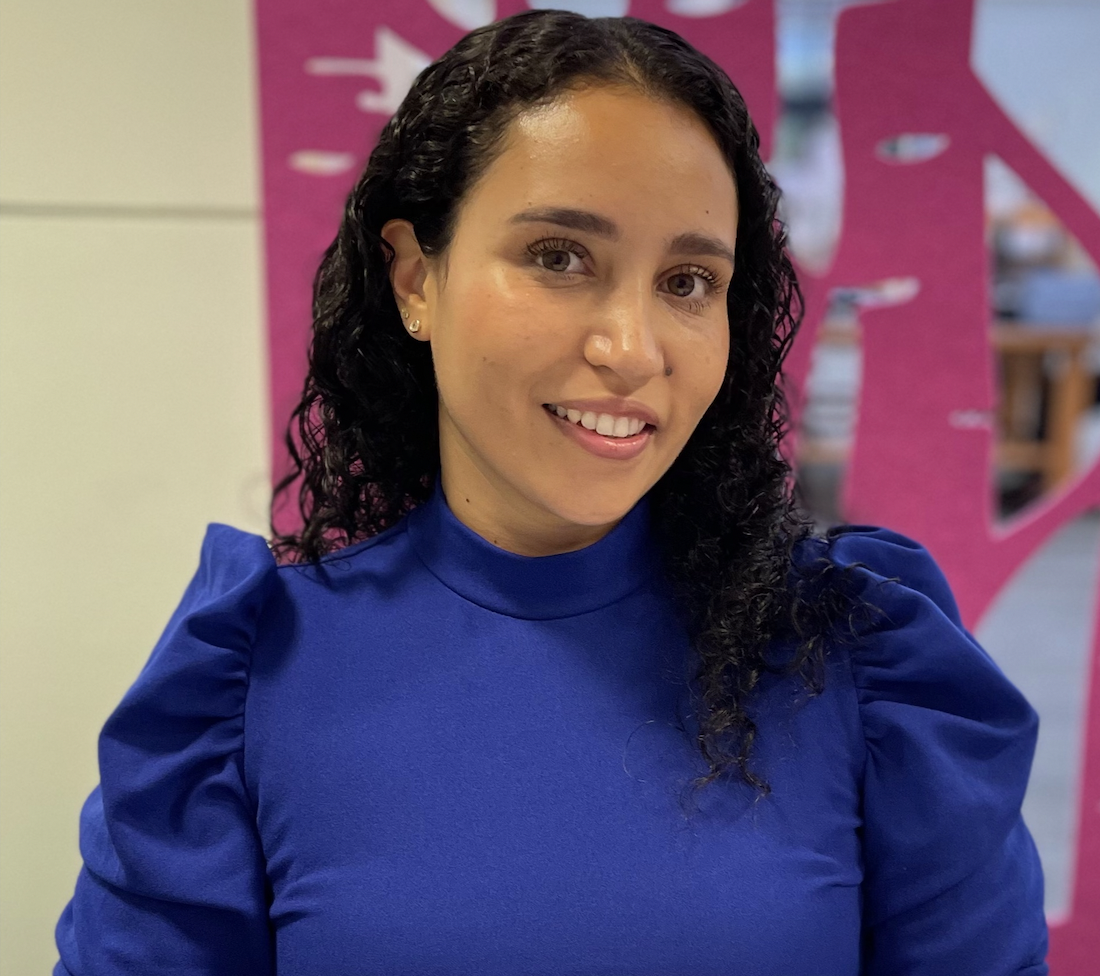 Francia Ximena Marin Gutierrez, MSW
Francia Ximena Marin Gutierrez, MSW
Projects: Rosie the Chatbot, Next Chapter Project
Francia Ximena Marin Gutierrez is a Research Coordinator for the Rosie the Chatbot study in the Behavioral and Community Health department in the University of Maryland School of Public Health. She holds a master’s degree in Social Work from Howard University and a bachelor’s degree in Psychology from Marymount University. She is currently pursuing a certificate program at the University of Maryland in Nonprofit Management and Leadership. Her areas of interest are Social Justice, Women and Children Welfare, Leadership Development, and Cultural Competence Development. She is passionate about working with diverse communities. Follow her on Twitter at @gu1_marin
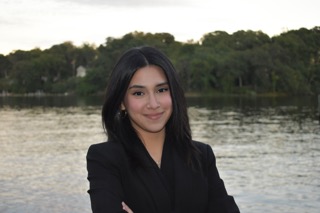 Rashel Moscoso-Morales, MPH
Rashel Moscoso-Morales, MPH
Projects: Rosie the Chatbot
Rashel Moscoso-Morales is a Master of Public Health in Behavioral and Community Health student from Prince George's County, Maryland. In addition to her role in the Community THRIVES Lab, she is also a research assistant at Children’s National Medical Center, assisting with racial and ethnic disparities research. She works as a community health worker and has extensive experience with local non-profit organizations targeting Hispanic and Latino communities. Her professional interests focus on health equity, particularly among the Hispanic and Latino community, and bridging language barrier gaps. As a first-generation student, she aims to use her education and skills to combat health inequities through research and applied practice.
 Amanda Ramlogan
Amanda Ramlogan
BS Student in Public Health Science
Amanda Ramlogan is an undergraduate Public Health Science major on the Pre-Medicine pathway from Prince George’s county, Maryland. Aside from being a research assistant in the THRIVES Lab, she is a member of the University of Maryland’s Student Health Advisory Committee, which works to improve the health and well-being of the students at the university. Her professional interests include women’s health and pediatrics. Amanda has previous experience in working to bridge the health equity gap for women’s health through community education and fundraising. After her undergraduate studies, Amanda hopes to attend medical school to become a Pediatrician, where she will use her public health knowledge to advocate for proper patient care for traditionally underserved communities.
Rebecca Chavez, MSW
Community Partner (Waikiki Health, HI)
Project: Wahine Talk
Megan Kaleipumehana Cabral, MSW
Community-based Researcher on O'ahu (HI)
Project: Wahine Talk
Melanie Geddings-Hayes, MSW, LCSW-C
Community Partner (Hearts and Homes for Youth)
Projects: Fostering Healthy Relationships, Next Chapter Project
ALUMNI
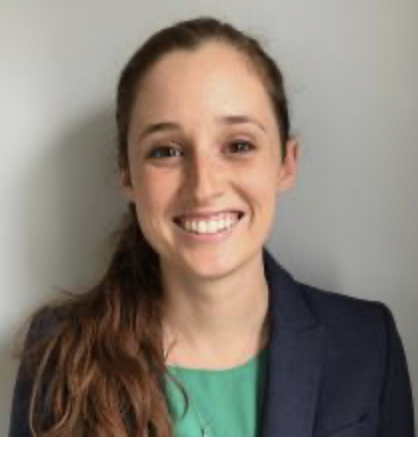
Amara Channell Doig, MPH, PhD
Projects: Wahine Talk, Next Chapter Project, Rosie the Chatbot
Amara Channell Doig graduated from the Department of Behavioral and Community Health's doctoral program. She holds a Bachelor's degree in Nutrition Science from the University of Georgia and a Master's degree in Public Health from George Washington University. Prior to starting her doctoral program, she worked as a Research Associate and Project Coordinator in the Department of Nutrition and Food Studies at George Mason University. In this capacity, she has worked with a local health department to assess breastfeeding and vitamin D practices among mothers receiving WIC and coordinated a childhood obesity research study. She previously worked in Lima, Peru to provide health care and education to impoverished communities as a health educator. She also worked as a principal advisor on the Peruvian National Nutrition Program. She has performed laboratory research, conducted fieldwork on medical care for children, and performed analyses of the role of the pharmacies in antibiotic overuse. Her research interests include cultural adaptations of interventions for ethnic and racial minorities, the use of social media for public health, pediatric obesity, and infant and toddler feeding practices. If you would like to learn more, please contact her at acdoig@umd.edu.
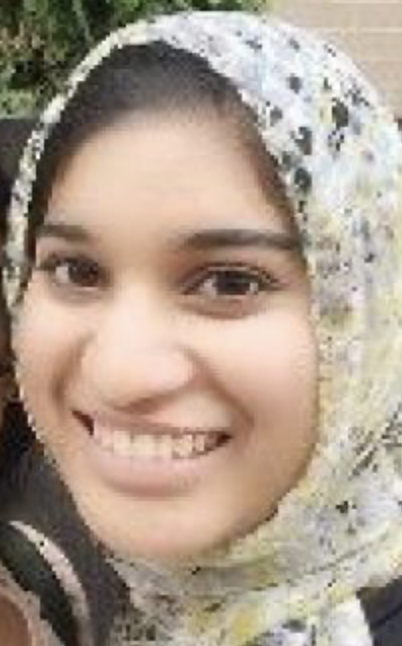
Maisha Huq, MSPH, PhD
Projects: Fostering Healthy Relationships, Wahine Talk, Next Chapter Project
Maisha Huq graduated from the Department of Behavioral and Community Health's doctoral program. She studied Economics as an undergraduate at Smith College and graduated from her Master of Science in Public Health from the Bloomberg School of Public Health at Johns Hopkins University. Maisha is most interested in research and direct service related to promoting positive health behavior promotions, and she has a special interest in youth. During her Master’s in Population, Family, and Reproductive Health, she focused on adolescent health and worked on school-based health programming research in Baltimore. She has worked on a variety of social, economic, and health program implementation and evaluation research projects on homelessness, workforce development, and behavioral health, family planning, and school health. She has previously worked at Abt Associates, the Center for Adolescent Health at Johns Hopkins, and the PMA2020 Bill & Melinda Gates Institute for Population and Reproductive Health. She values communities bringing their expertise and voice to addressing the issues which affect them most. At the THRIVES Lab, she conducted research guided by a commitment to community participation.
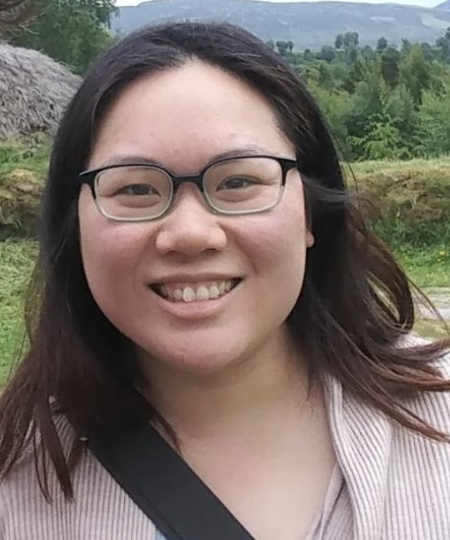
Charlene Kuo, MPH, PhD
Project: Wahine Talk
Charlene Kuo graduated from the Department of Behavioral and Community Health's doctoral program. Prior to her time at UMD SPH, Charlene worked as a Research Coordinator at Georgetown Lombardi Comprehensive Cancer Center's Cancer Prevention and Control Program. Broadly, she is interested in the social determinants of health and health equity. Charlene enjoys frameworks and methods that center the experiences and perspectives of people experiencing health disparities including critical race theory, community-based participatory research, and co-design. Charlene is curious about how American history, culture, values, and society has shaped public health in the United States. Charlene focused her dissertation on barriers to direct care workers accessing fair work benefits because it explores how care work and a workforce largely made up of women, racial/ethnic minorities, and immigrants are valued in the U.S. Charlene received her BA in American Studies and BS in Biological Science from the University of Maryland Baltimore County and her MPH in Community Health Sciences from Tulane University School of Public Health and Tropical Medicine.
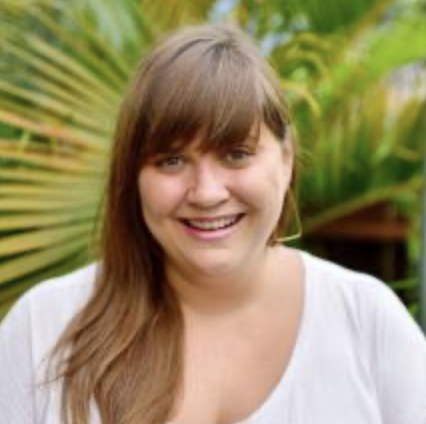
Danielle Phillips, MSW, LSW, PhD
PhD Student in Social Work at UMB School of Social Work
Projects: Wahine Talk, Next Chapter Project
Danielle Phillips graduated from the University of Maryland, Baltimore School of Social Work. Her research interests are centered on humanistic issues that often imply a lack of equity and access that affect minorities, particularly women, such as housing, wage equity, reproductive health, racism, mental health, education, and personal safety. Danielle's research focus is on intersectional approaches to social policy analysis and development as related to intergenerational trauma and its effects on families. Danielle received her Masters of Social Work from the University of Hawai'i Myron B. Thompson School of Social Work and her Bachelor of Science in Psychology from the University of Georgia. Danielle is a Licensed Social Worker (LSW) in the state of Hawai'i. Prior to relocating to Maryland in August 2018, Danielle formerly worked as the Director of Social Services at Hale Makua Health Services on the island of Maui while serving on the National Association of Social Workers (NASW) Hawai'i Chapter Board of Directors as a member-at-large, Chair of the Continuing Education Committee, and Chair of the PACE Committee. Danielle has served as a research assistant with the Wahine Talk project since 2016.
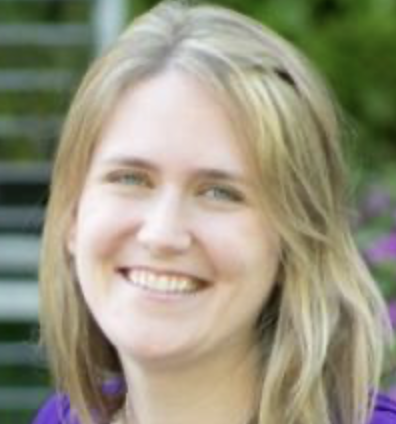
Jennifer Robinson, MPH, PhD
Projects: Rosie the Chatbot, Fostering Healthy Relationships, COVID-19 parenting, Next Chapter Project, Wahine Talk
Jennifer Robinson graduated from the Department of Behavioral and Community Health. She received her Master of Public Health degree from the Johns Hopkins Bloomberg School of Public Health and her BA in Psychology and English from the University of Maryland, College Park. She has worked as a consultant conducting qualitative, quantitative, and mixed methods research on public health topics for a variety of stakeholders (e.g., USAID, National Cancer Institute). She has also been active in mental health advocacy and has worked to help those in crisis as a volunteer counselor. She served as a record and graduate teaching assistant in the Behavioral and Community Health department. Her current research seeks to understand and address the sexual and reproductive health and mental health needs of marginalized youth. If you would like to learn more, please contact her at jrobin20@umd.edu.
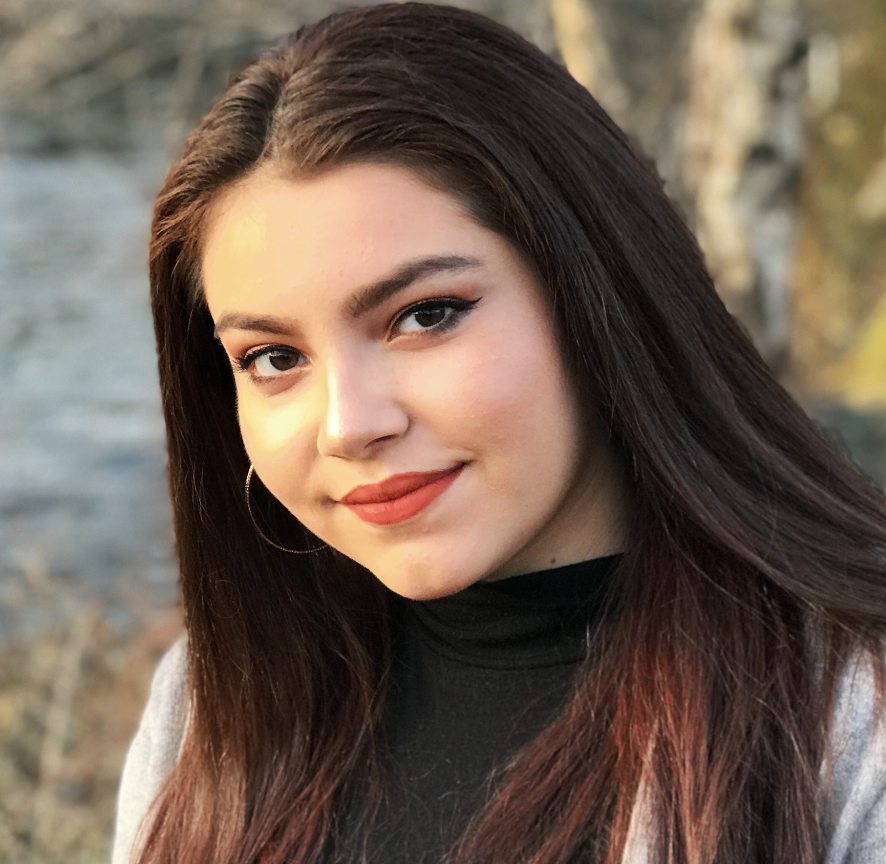 Karla Cantarero
Karla Cantarero
BS Student in Public Health Science
Karla Cantarero graduated with her degree on Public Health Science. She holds a certification as an Emergency Medical Technician and worked as a Medical Assistant at a Dermatology Office. She volunteers at Luminus Network for New Americans as a Family and Community Service Volunteer and Youth Mentor. At Luminus, she helps immigrants in her community find access to resources they may need in their day to day life. It is through Luminus and her clinical experience that she personally witnessed the barriers the Latinx community faces when seeking access to healthcare. This sparked her professional interest to serve her community in a healthcare setting while focusing on expanding accessibility, healthcare equity, and disease prevention. Karla hopes to attend graduate school to obtain an MPH as well as attend medical school to pursue a career as an OBGYN, with a focus in women and maternal health.
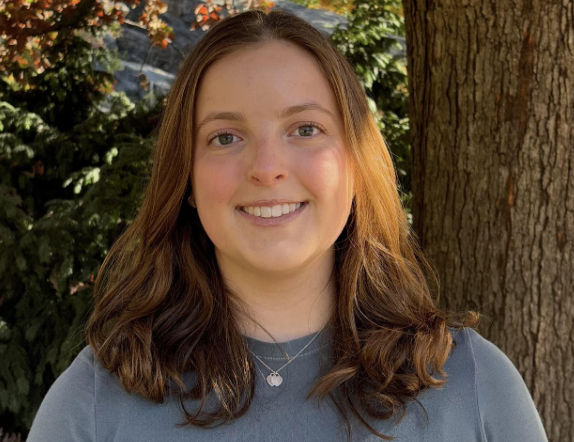 Julia Phillips
Julia Phillips
BS Student in Public Health Science
Julia Phillips is an undergraduate Public Health Science major from Cromwell, Connecticut. Within public health, her interests lie in understanding and addressing health disparities and promoting health literacy within communities. She is a volunteer in the Central Sterile unit at Middlesex Hospital in Connecticut, and a volunteer for University of Maryland’s Global Dental Brigades program. She collaborated as a research assistant in the THRIVES Lab. Julia hopes to integrate her foundation in public health and health promotion with a future career in the dental field, where she aims to advocate for equitable treatment and access to care.
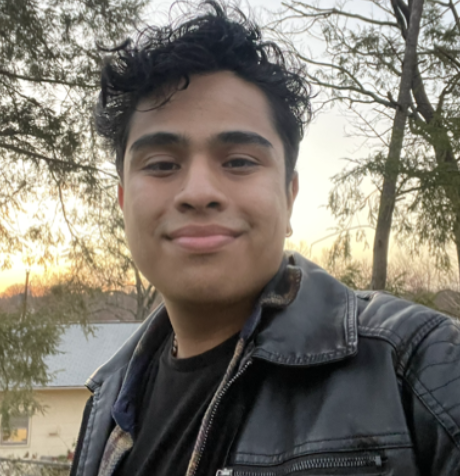 Manuel Custodio
Manuel Custodio
BS Student in Public Health Science
Manuel Custodio is an undergraduate Public Health Science major. Manuel is originally from Silver Spring, Maryland. He is a certified clinical medical assistant and began gaining clinical experience by being a vaccinator at Holy Cross Hospital’s Covid Vaccine Clinic where he developed an interest in vaccine hesitancy and development. His goals are to double major in microbiology and gain an upper level concentration in vaccine development and virology while focusing on vaccine hesitancy in marginalized communities. His plans after graduation include graduate school to further study public health and virology.
 Elizabeth Rojas
Elizabeth Rojas
BS Graduate in Biological Science
Elizabeth Rojas is an undergraduate with her degree on Biological Science major from Montgomery County, Maryland with a minor in Sustainability. Elizabeth is a scribe in the emergency room department at her local hospital. Her professional interests include improving and expanding on health inequalities for women and the Latinx community. She hopes to get her MPH to pursue her passion in closing the barriers in health disparities as well as go to P.A. school to advocate for patient care from a provider’s standpoint.
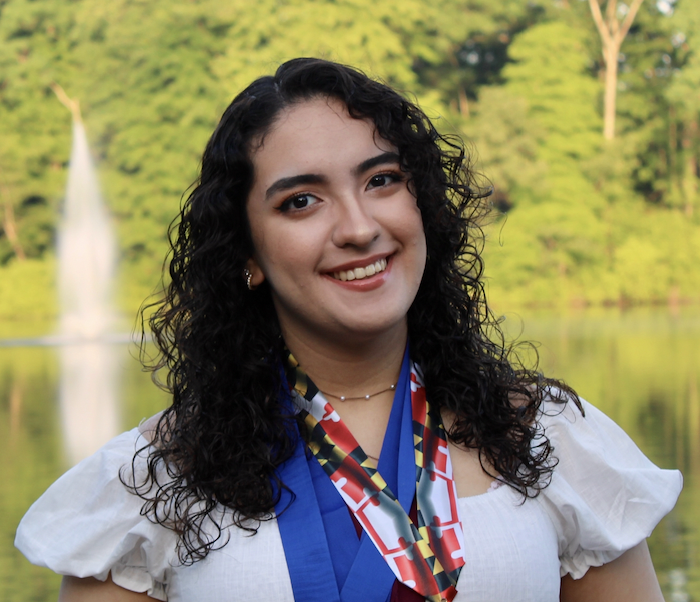 Michelle Rodriguez
Michelle Rodriguez
BS Student in Public Health Science
Michelle Rodriguez is an undergraduate Public Health Science major from Prince George’s County, Maryland with minors in Humanities, Health, and Medicine and Science, Technology, Ethics, and Policy. She currently serves as a Bilingual Health Promoter at Coaching Salud Holistica, where she assists in implementing evidence-based and culturally competent health education services to underserved communities in Maryland. Her professional interests focus on social epidemiology and social justice, driven by a desire to foster a fair and equitable society, particularly in the realms of health. As a first-generation student, she hopes to promote cross-cultural understanding in areas of health education and cultural humility, ensuring greater health equity for all. After graduation, she hopes to attend graduate school and earn her MPH degree with a focus in Epidemiology or Health Policy.
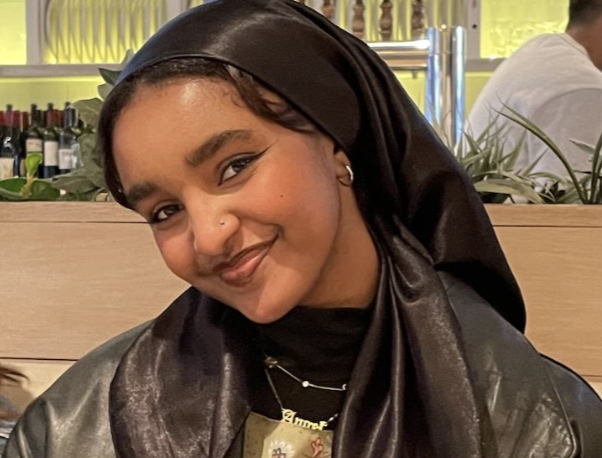 Ruwaida Said
Ruwaida Said
BS Student in Public Health Science
Ruwaida Said is an undergraduate student at the Department of Behavioral and Community Health, majoring in Community Health and double minoring in Human Development and Creative Writing. She served as a Research Assistant for the MM-HRTS study, alongside her inquisitiveness in the Rosie the Chatbot project. Interested in pursuing a chiropractic specialization in Maternal and Infant Health, Ruwaida's passion lies in bridging the health literacy gaps between health professionals and patients, discerning certain epidemiological measures to accentuate pre/postnatal care, and establishing mediums to vocalize the effects of community-wide social determinants of health. Ruwaida serves as a chiropractic aid/scribe in the Southeast D.C. region, collaborating with chiropractors and health educators in the tri-state area in efforts to gradually eliminate rampant cases of health inequities, more especially in mothers and women of color. Beyond graduation, she aims to further her education by pursuing a doctorate in chiropractic while simultaneously conducting interdisciplinary research in varying levels of post-natal health.
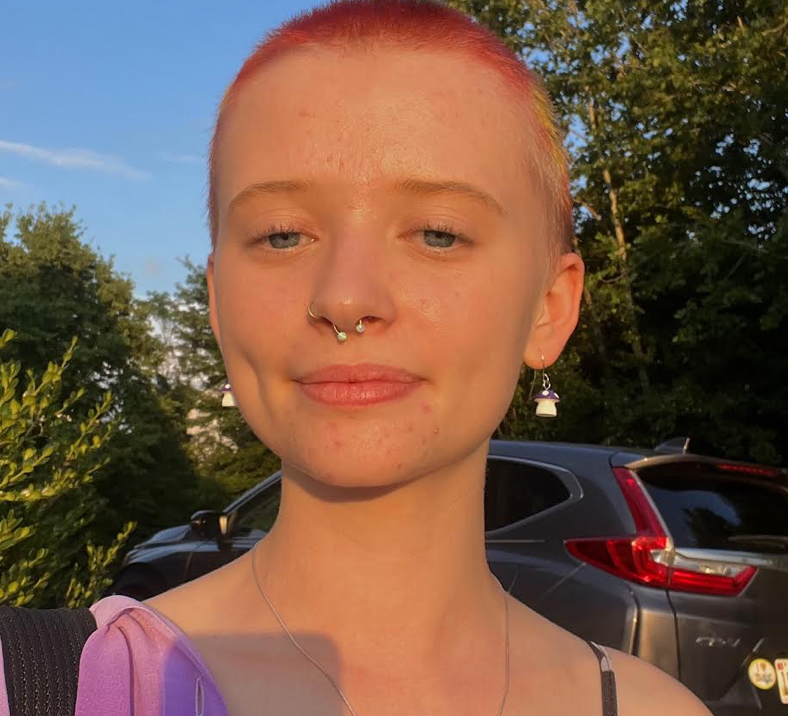 Kaili Clark
Kaili Clark
BS Graduate in Computer Science
Kaili Clark graduated with her degree on Computer Science with a minor in Neuroscience from University of Maryland. Aside from the Community THRIVES Lab, she was part of the Gemstone Honors Program on Team UNITED evaluating the perceptions of disordered eating behaviors in men and the barriers to accessing care. She has also served as a research assistant for the Solway Lab investigating decision making disruption in OCD. Her professional interests focus on increasing accessibility to care, child development, neuroimaging, and disability studies. She hopes to attend graduate school to further study computational neuroscience.
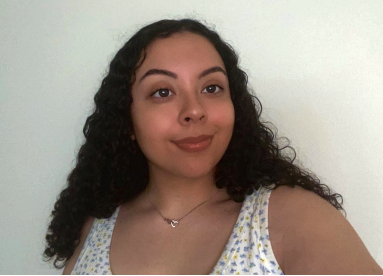
Yesenia Lemus Avila
BS Student in Public Health Science
Yesenia Lemus Avila graduated with her degree on Public Health Science from University of Maryland. Yesenia was a research assistant in the Community THRIVES Lab and has been involved in various cultural and health organizations. Furthermore, she is also a CNA and a volunteer at the pediatric emergency department at John Hopkins Hospital. Her professional interests include maternal health, child health, and minority health. She plans to attend medical school to specialize in pediatrics, where she can apply both her public health and medical knowledge/experiences. Yesenia’s lifetime goal is to open up various pediatric clinics in underprivileged areas to provide adequate healthcare in hopes to decrease the health inequity gap in the United States.
 Megan McCarthy, MPH
Megan McCarthy, MPH
Project: Rosie the Chatbot
Megan V. McCarthy graduated with her Master’s of Public Health (MPH) in Behavioral and Community Health from the University of Maryland in College Park. She holds a Bachelor of Science in Communication Arts from St. John’s University. During her time with the Community THRIVES Lab, Megan engaged in projects such as Rosie the Chatbot, while also conducting capstone research with the DC Women, Infants and Children’s (WIC) Program to explore digital health resources for providing breastfeeding education and support to program participants. Megan hopes to continue gaining experience and skills in Health Communications, as well as Maternal and Child Health research. Please feel free to follow Megan on twitter @Megvmc and/or contact her via email at mmccart5@umd.edu.
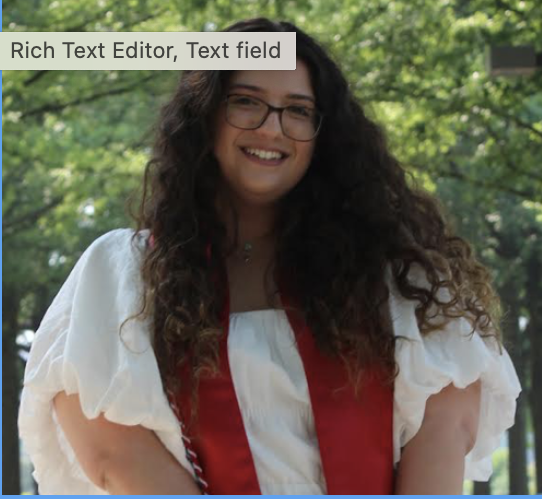 Shachar Gazit-Rosenthal, MPH
Shachar Gazit-Rosenthal, MPH
Project: Rosie the Chatbot
Shachar graduated with her Masters of Public Health (MPH) student with a Behavioral and Community Health concentration. She has a Bachelor of Science in Public Health Science from the University of Maryland, as well as a minor in Public Leadership. She worked as a graduate research assistant at the University of Maryland’s Prevention Research Center, where she worked to support the Community Advisory Board and the Sexual and Gender Diversity Learning Community (SGDLC) program. Her research focuses largely on sexual and gender inequities among underserved populations, as well as the effect of such inequities on youth and their ability to thrive later in life. For her graduate capstone, she worked with the St. Ann’s Center for Children, Youth, and Families to develop a health education curriculum for their young adult pregnant and parenting population that will help to educate and inform the next generation of parents. She is passionate about advocating for equity and equality and working with diverse groups. She can be reached at sgazitro@terpmail.umd.edu
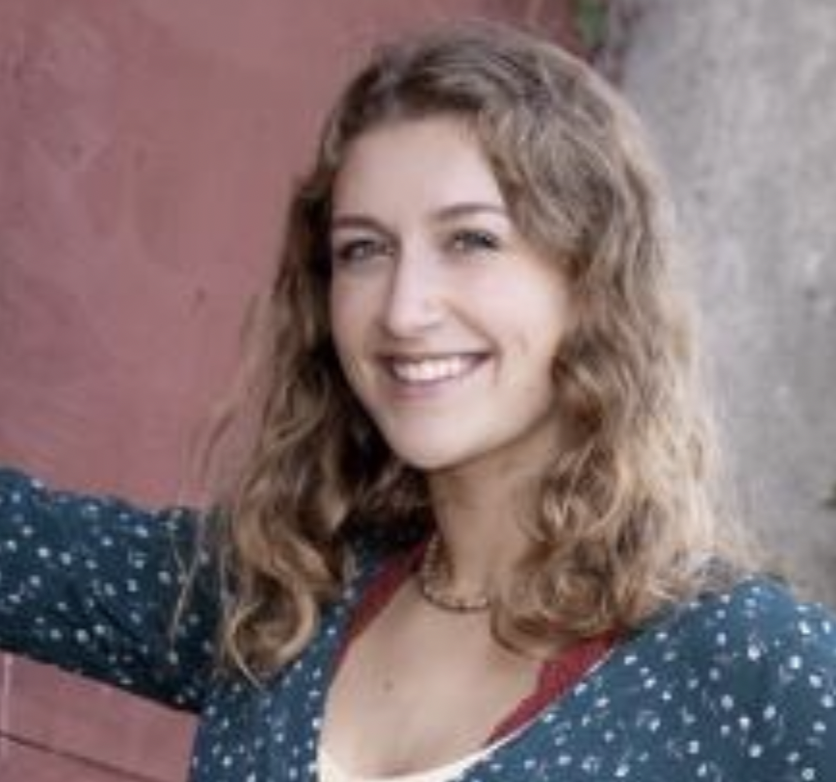 Katelyn Reynolds
Katelyn Reynolds
BS Graduate in Biological Sciences: Physiology and Neurobiology
Project: African American Father-Daughter Sexual Health Communication, Next Chapter, Wahine Talk
Katelyn Reynolds graduated with her degree on Biology with minors in Global Poverty and Humanities, Health and Medicine from University of Maryland. Aside from her experience working with Community THRIVES Lab, Katelyn has significant experience working with children and families as an assistant in a preschool and gymnastics coach. She is also a certified nursing assistant. Katelyn plans to attend medical school and ultimately practice in the field of women’s health. Katelyn is interested in sexual health education and creating solutions to disparities in health care related to gender, race, and ethnicity. Katelyn believes working in the Community THRIVES Lab not only gave her experience in the research process but also an opportunity to see how the field of community health operates to best serve the population at hand.
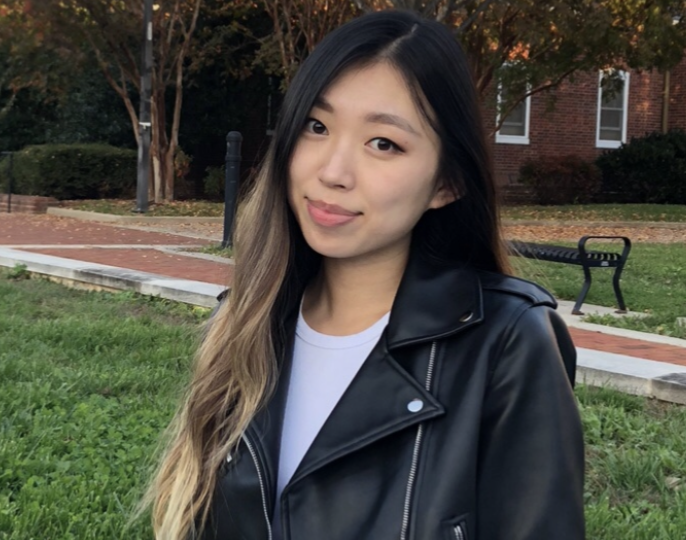
Kayla Bae
BS Graduate in Public Health Science
Kayla Bae graduated with her degree on Public Health from University of Maryland. She was a research assistant in the Community THRIVES Lab while also being involved in other health and cultural organizations on campus. Her professional interests include sexual and reproductive health among women and youth. Her plan is to attend medical school where she can pursue a career in sexual and reproductive health and to continue to empower more children and women.
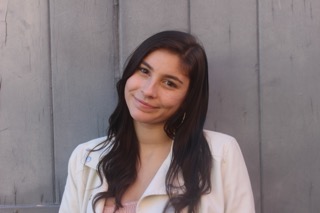
Claire Dormitzer
BS Graduate in Public Policy and Communications
Claire Dormitzer graduated with her degree on Public Policy and Communications with a focus in Health Policy from University of Maryland. She has experience working in development for nonprofit organizations that focus on furthering health outcomes for underprivileged communities. She plans to enter the health policy field, in the nonprofit or government sector. Her professional interest lies in evaluating and establishing policy in the family and maternal, and sexual and reproductive health fields.
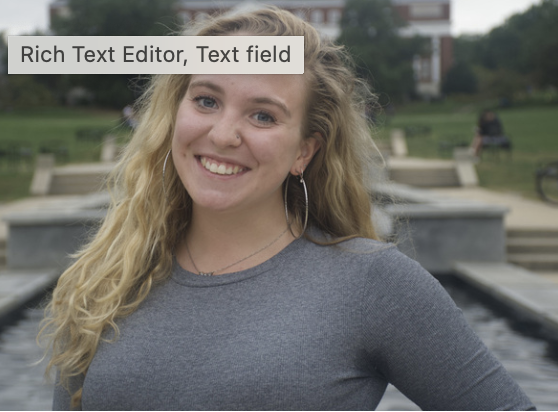
Madeline Chaunt, MPH
Project: Rosie the Chatbot, Next Chapter Project
Madeline Chaunt graduated with her degree of Master of Public Health from University of Maryland. She joined THRIVES Lab in Spring 2023 and since then she worked mainly with data from Fostering Healthy Relationships, and supporting work for Rosie the Chatbot and the Next Chapter Project. During her time at THRIVES, she conducted a Capstone project on disability depiction and representation in children’s media to inform a children’s television program with the edutainment production company, Ubongo, based in Tanzania. Additionally, she graduated from the University of Maryland with a B.S. in Community Health and a minor in Health, Humanities, and Medicine with Honors in Spring 2022. For her undergraduate thesis, she investigated HIV positive female sex workers and their willingness to seek care on a global scale. Madeline has worked as an intern with the National Cancer Institute in the Department of Cancer Control and Population Sciences in the Behavioral Research Program, conducting literature reviews on sedentary behavior and nutrition and independent analyses on mental health and food intake in Spring 2022. Prior to that, she worked with the MTV Staying Alive Foundation in Summer 2021, assisting in health communication initiatives promoting safe sexual behavior for young adults. Madeline is also a teaching assistant for the undergraduate course, Foundations of Public Health (SPHL100), for Summer Session 1, and was during the 2022-2023 academic year. Madeline hopes to find herself working in global or women’s health, but is open to other options and exploring more areas of public health. If you would like to contact her, she can be reached at mchaunt@umd.edu.
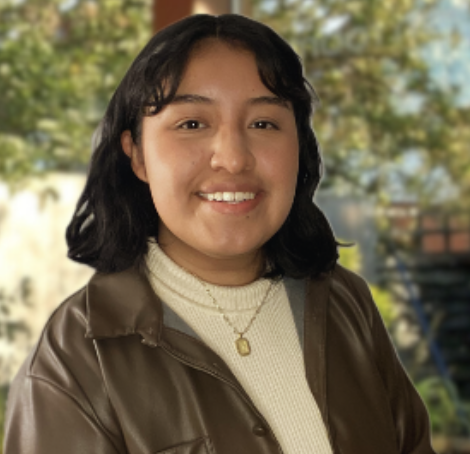 Natalia Alfaro, MPH
Natalia Alfaro, MPH
Projects: Rosie the Chatbot
Natalia is a second-year Master of Public Health (MPH) student with a concentration in Epidemiology. She holds a Bachelor of Arts in Public Health, focusing on health policy and population health, from the University of Maryland, Baltimore County. Additionally, she has earned a Certificate in Social Dimensions of Health. Currently, Natalia serves as an assistant at Pro Bono Counseling, where she works to support Marylander's access to mental health resources. She is deeply committed to advocating for equity and accessibility within Queer and Hispanic/Latinx communities, aiming to reduce disparities in physical, emotional, and mental well-being among these populations. Post-graduation, Natalia aspires to use her MPH to work as an Epidemiologist, supporting research aimed at addressing such disparities and promoting accessibility.
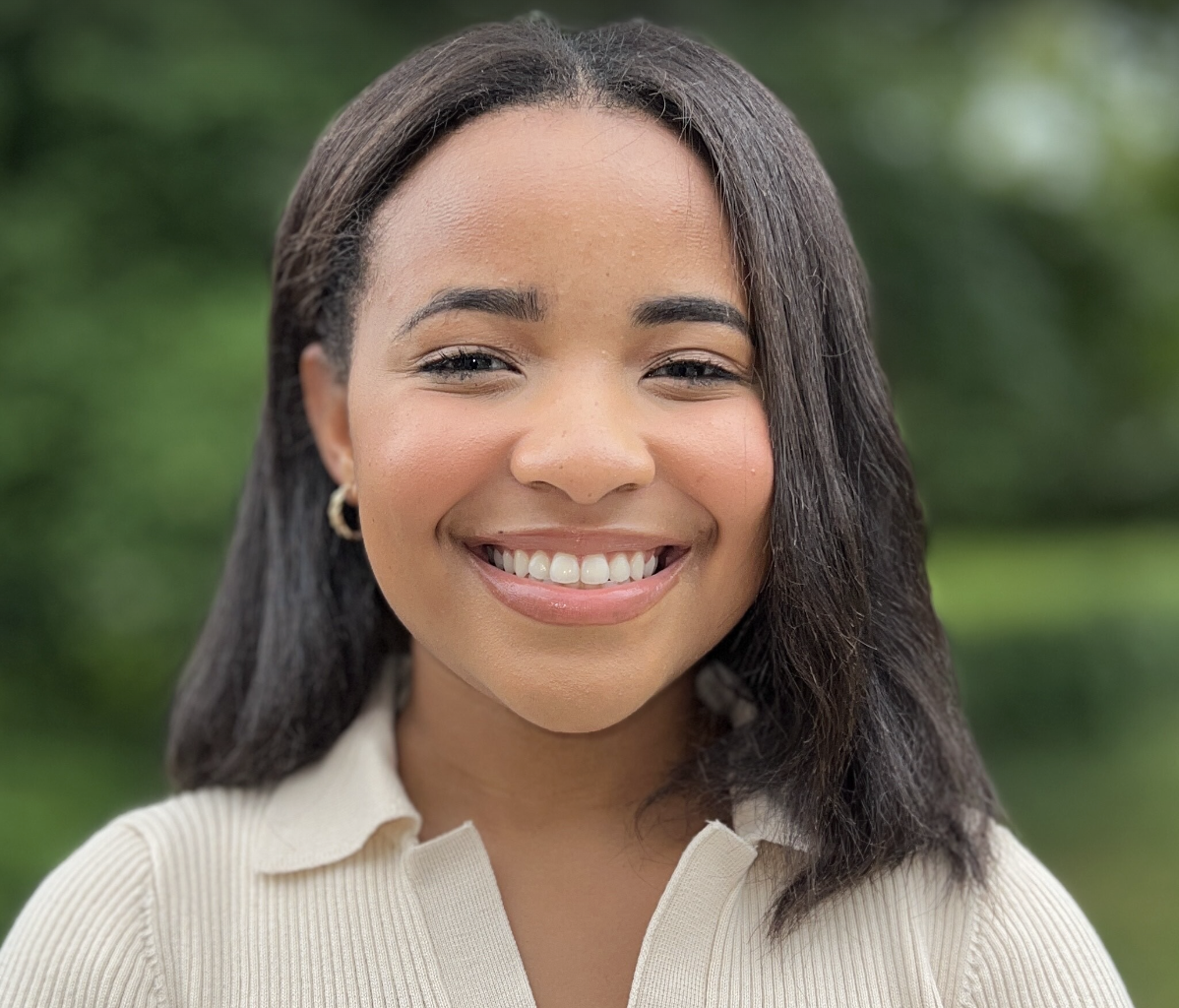 Camille Clarke, MPH
Camille Clarke, MPH
Projects: Rosie the Chatbot
Camille Clarke is a Master of Public Health student with a concentration in Healthcare Management. Camille received her bachelor’s in Community Health from the University of Maryland in 2023. Her interests include health equity and improving health systems in marginalized communities. She is a graduate assistant for the Urban Equity Collaborative, assisting with Community-based research. Camille is committed to improving health among immigrants and communities of color to bridge health gaps.
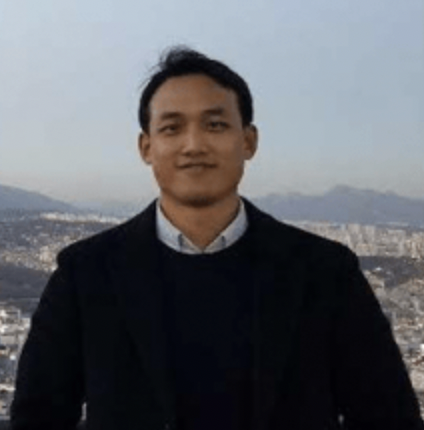 Jee Hun (Mike) Yoo, MHS, PhD
Jee Hun (Mike) Yoo, MHS, PhD
Project: Next Chapter Project
Jee Hun (Mike) Yoo is a PhD graduate of the Department of Behavioral and Community Health. He received his BA in public health studies and psychology at Johns Hopkins University and MHS in environmental health science at the Johns Hopkins Bloomberg School of Public Health. His research interest is around better understanding the various ways that cultural factors affect the mental health of minority and marginalized population. In particular, he is interested in how people manage and cope with different stressors in their lives, and how various cultural factors help or hinder people in achieving healthy management of their mental health. If you would like to learn more, please contact him at jyoo22@umd.edu.
 John P. Salerno, MPH, PhD
John P. Salerno, MPH, PhD
Project: Fostering Healthy Relationships
John is a PhD graduate from the University of Maryland (UMD) School of Public Health (SPH), Department of Behavioral and Community Health (BCH). His sexual/gender and racial/ethnic identities are gay/cisgender men and Hispanic/Latino, and he uses he/him/his pronouns. He received his BA in psychology and MPH in prevention science and community health at the University of Miami (UM). Prior to beginning this doctoral program, he worked at a Center of Excellence for Health Disparities Research at the UM School of Nursing & Health Studies. His research there focused on the implementation of precision medicine approaches adolescent mental health awareness in schools, health promotion/disease prevention among homeless individuals and victims of intimate partner violence, and the health of racial/ethnic and sexual/gender minorities. He has expertise in community engagement, community-based participatory research, program evaluation, and scientific writing within the field of public health. He has a special research interest in LGBTQ+ health and is particularly interested in research to improve the health of hyper-marginalized LGBTQ+ youth, including those in public systems (child welfare and criminal justice), the homeless, racial/ethnic minorities, and immigrants/refugees. His current/active research projects target these populations. The overarching goal of his research is to improve the life trajectories of individuals who have fewer chances to succeed in life and are at risk for health disparities due to their intersectional and marginalized identities. For more information about him and his current/past work, please visit his ResearchGate and Linkedin profile pages. If you would like to learn more about him or his research, please do not hesitate to contact him at Jsalerno@umd.edu.
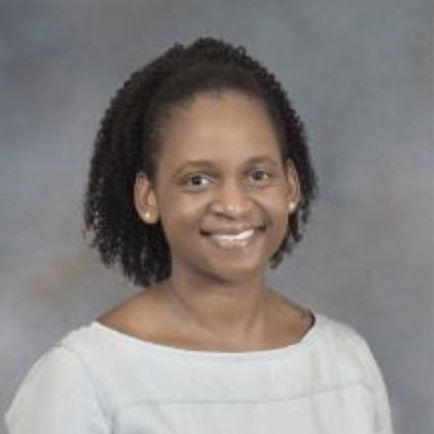 Olivia Kachingwe, Ph.D., MPH
Olivia Kachingwe, Ph.D., MPH
Projects: African American Father-Daughter Sexual Health Communication, Wahine Talk, Fostering Healthy Relationships
Olivia Kachingwe received her PhD from the Department of Behavioral and Community Health. Her research focuses on sexual health decision-making and sexual risk behavior among racial and sexual minority youth. Prior to attending the University of Maryland, Olivia worked as a Project Coordinator for a health equity project funded by the Rhode Island Department of Health. The project was stewarded by the Women's Resource Center, a domestic violence non-profit organization in Newport, Rhode Island. Olivia received her BA in Health and Societies from the University of Pennsylvania and her MPH with a concentration in Health Behavior from Brown University, School of Public Health. To learn more, please contact Olivia via email at okaching@umd.edu.
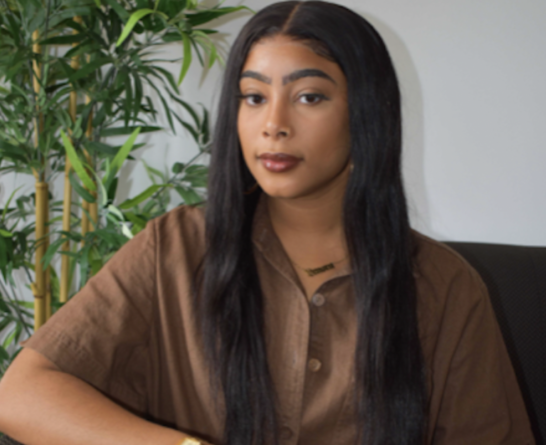 Lenora Blakely
Lenora Blakely
BS Graduate in Public Health Science
Lenora Blakely graduated with her BS in Public Health Science. Her next goal is to earn an MPH in a Global Public Health program. Her professional interest lies in conducting field research in child and maternal health in latino populations, particularly in Central and South America.
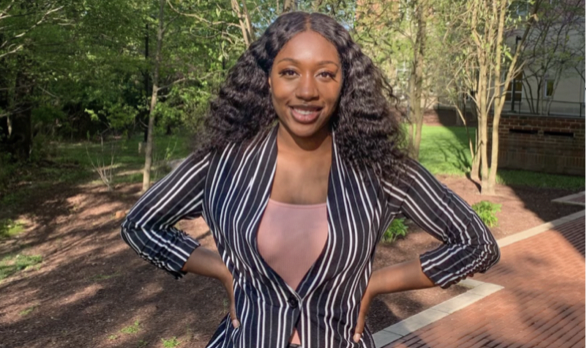 Lisa Anoruo
Lisa Anoruo
BS Graduate in Public Health Science
Lisa Anoruo graduated with her Public Health Science degree on the pre-med track. She grew up in Baltimore County Maryland but is originally from Owerri, Nigeria. Lisa is interested in maternal and child health, especially surrounding the disproportional health care disparities amongst African American mothers. After her undergraduate years at UMD, Lisa plans to attend medical school where she can pursue her goal of becoming a pediatrician to apply her knowledge of public health and medicine to empower and treat children and young mothers. Lisa also plans to open a practice in Nigeria to empower and treat children and young mothers facing adverse health effects.

Stefany Zelaya
BS Graduate in Public Health Science
Stefany Zelaya graduated with her BS in Public Health Science. She is from Baltimore County, Maryland and serves as a research assistant in the Community THRIVES Lab. Her professional interests are focused on improving community health and improving access to health services among minority communities. She is interested in topics surrounding substance use and HIV/AIDS. After her undergraduate studies, she hopes to attend graduate school for a masters in public health or masters in health administration.
 Faduma Aden
Faduma Aden
BS Graduate in Public Health Science
Projects: Fostering Healthy Relationships, Next Chapter Project, Wahine Talk
Faduma Aden is from Montgomery County, Maryland and originally from Somalia. Faduma served as an undergraduate research assistant in the Community THRIVES Lab and was also involved in both cultural and health organizations on campus. Her professional interests focus on women's health, particularly reproductive and sexual health. Faduma uses she/her/hers pronouns and is particularly interested in community-based participatory work, such as the Community THRIVES Lab's projects. Faduma plans to earn her MPH degree with a focus in health behavior and/or health policy, then move on to work in the programming and policy realm of public health. Faduma then hopes earn a PhD in Public Health, with a research focus on improving access to reproductive and sexual health resources for vulnerable populations.
Kaitlyn Lee, BS, MPH
Community-Based Researcher in Maryland
Projects: Next Chapter Project, Wahine Talk
Kaitlyn earned her MPH from the Department of Behavioral and Community Health in 2020 and has worked with the lab since 2019. She received her Bachelor of Science degree in Psychology from the University of Maryland in 2013. Prior to entering the MPH program, Kaitlyn was employed as a Research Assistant in the Center for Creativity and Innovation (CINC) at the University of Colorado, Boulder where she helped manage a study, which assessed the validity of an online substance use assessment. Prior to that, she was an Interviewer for the Epidemiological Catchment Area study at Johns Hopkins Bloomberg School of Public Health. Kaitlyn’s research interests still include mental health and substance use, but also violence prevention in the urban youth population as well as global health disparities.
Eshana Parekh
BS Graduate in Human Ecology
Projects: Fostering Healthy Relationships, Next Chapter Project, Wahine Talk
Eshana Parekh graduated with a degree in Ecology and Evolution major and Spanish minor. She is from Howard County, Maryland and served as an undergraduate research assistant in the Community THRIVES Lab. Eshana has also previously worked at an ecology research lab at the University of Maryland, collecting wetland data in efforts to improve the Delmarva wetland ecosystem. Her professional interests are centered around bettering community health, especially among minority communities, as well as environmental conservation and activism. After her undergraduate studies, she hopes to join the Peace Corps to serve marginalized populations and better community health on a global scale. Eshana would then like to go to graduate school to advance her abilities to serve others in the medical field.
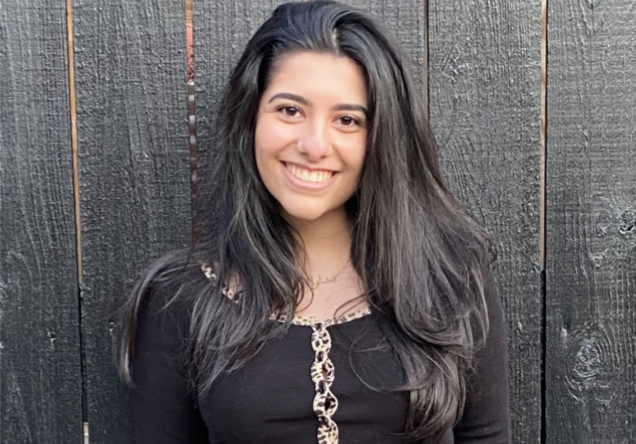
Sara Garmchi
BS Graduate in Psychology
Sara Garmchi graduated with her degree on Psychology from University of Maryland. As a medical assistant at an OBGYN office, she has a lot of interaction and experiences related to maternal health. Sara is interested in the mental health of foster youth and empowering and assisting young mothers from this system who lack a stable support system. Additionally, she is interested in exploring the issues that foster youth face in the healthcare system. Sara plans to attend medical school and pursue a career as a pediatric/adolescent psychiatrist.
Emily Hillig
BS in Community Health
Projects: Wahine Talk, Next Chapter Project
Publications
Books
*Childress, S., Aparicio, E. M., & Messing, J. (2019). Domestic violence in Kyrgyzstan: Finding a voice of strength and empowerment. In K. Zaleski, A., Enrile, E.L. Weiss, & X. Wang (Eds.), Women’s journey to empowerment in the 21st century: A transnational feminist analysis of women’s lives in modern times. New York, NY: Oxford University Press.
*Jones Harden, B., Aguilar, E., Cruz, C., & Aparicio, E. (2015). Promoting positive parenting: Infant mental health intervention with high-risk families. In C. LeCroy & E. Anthony (Eds.), Case studies in child, adolescent, and family treatment (2nd ed.). 219-235. Hoboken, NJ: John Wiley & Sons.
Refereed Journal Articles
(*designates co-authored with student/s)
**Nguyen, Q.C., Aparicio, E.M., Jasczynski, M., Channell Doig, A., Yue, X., Mane, H., Srikanth, H., Marin Gutierrez, F.X., Delcid, N., He., X., & Boyd-Graber, J. (2023). Rosie, a health education question-and-answer chatbot for new mothers: Randomized pilot study. JMIR Formative Research. Advance online publication.
*+Salerno, J.S., Getrich, C.M., Fish, J.N., Castillo, Y., Edmiston, S., Sandoval, P., Aparicio, E.M., Fryer, C.S., Boekeloo, B.O. (2023). Associations between post-traumatic stress and latent profiles of psychosocial stressors and buffers among Latinx immigrant youth. Psychiatry Research, 220.
*Boekeloo, B.O., Turpin, R., Shin, R., Fish, J.N., Aparicio, E.M., King-Marshall, E., Lare, S., Vigorito. M. (2023). LGBTQ+ cultural-competence training effectiveness: Mental health organization and therapist survey outcome results from a randomized controlled trial. Clinical Psychology & Psychotherapy. Advance online publication.
**+Huq, M., Phillips, D.R., Childers, C., Chavez., R., Tellei, J., Blakey, L., & Aparicio, E.M. (2023). Opportunities and challenges to linkage to housing in the context of a sexual and reproductive health program for youth experiencing homelessness. Prevention Science. Advance online publication.
*Kuo, C., Jasczynski, M., Yoo, J.H., Robinson, J.L., Reynolds, K., Anoruo, L., Bae, K., Ka’opua, L.S., Chavez, R., Tellei, J., & Aparicio, E.M. (2023). “I need to get my culture back:” Integrating culturally based approaches into sexual and reproductive health programs for Native Hawaiian and other Pacific Islander youth experiencing homelessness. Prevention Science. Advance online publication.
**Mane, H., Channell Doig, A., Marin Gutierrez, F.X., Jasczynski, M., Yue, X., Srikanth, N.P., Mane, S., Sun, A., Moats, R.A., Patel, P., He, X., Boyd-Graber, J., Aparicio, E.M., & Nguyen, Q.C. (2023). Practical guidance for the development of Rosie, a health education question and answer chatbot for new mothers. Journal of Public Health Management and Practice, 29(5), 663-670.
**Muñoz Bohorquez, J., Parra, D.C., Saperstein, S.L., Aparicio, E.M., Lewin, A., & Green, K.M (2023). Feasibility of implementing a mindfulness-based online program for Latina immigrants and the staff that work with them. Mindfulness, 14, 1148-1161.
**Channell Doig, A., Aparicio, E.M., & Gallo, S. (2023). Familial sources of encouragement and breastfeeding practices among women participating in the US special supplemental nutrition programme for women, infants, and children. Public Health Nutrition, 26(9), 1871-1877.
**+Aparicio, E.M., Shpiegel, S., Martinez-Garcia, G., Sanchez, A., Jasczyński, M., Ventola, M., Channell Doig, A., Robinson, J.L., & Smith, R. (2023). Experiences of the COVID-19 pandemic among young parents in and transitioning from foster care: A participatory action PhotoVoice study. Children and Youth Services Review, 148, 106872.
**Fish, J.N., King-Marshall, E., Turpin, R., Aparicio, E.M., & Boekeloo, B. (2023). Assessing the implementation of a LGBTQ+ mental health services training program to determine feasibility and acceptability during the COVID-19 pandemic. Prevention Science. Advance online publication.
**Kachingwe, O.N., Reynolds, K.D., Blakely, L., & Aparicio, E.M. (2023). Sexual health communication among Black father-daughter dyads: A grounded theory study. Journal of Family Psychology, 37(4), 464-474.
*Olsen, S.H., Aparicio, E.M., Jaeger, P.T., & Howard, D.E. (In Press). Exploring motivations to be active among amputees: A phenomenological approach to leisure time physical activity. International Journal of Qualitative Studies on Health and Well-being.
**+Channell Doig, A., Jasczyński, M., Phillips, D.R., Robinson, J.L., Aden, F., Huq, M., Lee, K., Jones, G., Bernardi, C., & Aparicio, E.M. (2023). Experiences of child welfare social workers in addressing substance use among maltreated young mothers to prevent child maltreatment. Child and Family Social Work, 28, 846-857.
*+ Aparicio, E.M., Channell Doig, A., Jasczyński, M., Robinson, J.L., Huq, M., Yoo, J.H., Hillig, E., Lee, K., Berkowitz, A., Guastaferro, K., Jones, G., & Bernardi, C. (In Press). Parenting and mental health needs of young, maltreated parents: Implications for prevention of intergenerational child maltreatment. Journal of Family Violence.
*Williams, N., Winer, B., Smith-Bynum, M., Aparicio, E.M., Boekeloo, B., & Fish, J.N. (In Press). Professional expectations of mental health provider LGBTQ competence: Where we are and where we need to go. Journal of Gay and Lesbian Mental Health.
*+ Shpiegel, S., Aparicio, E.M., Ventola, M., Channell Doig, A., Jasczynski, M., Martnez-Garc
a, G., Smith, R., Sanchez, A., & Robinson, J.L. (In Press). Experiences of young parents with foster care backgrounds during the COVID-19 pandemic. Child Abuse and Neglect.
*+Kachingwe, O.N., Phillips, D.R., Jasczyński, M., Hillig, E., Chavez, R., Tellei, J., & Aparicio, E.M. (In Press). “I told him I’m gonna get it”: Intimate partner birth control communication among homeless young women. Culture, Health, and Sexuality.
*+Aparicio, E.M., Shpiegel, S., Martnez-Garc
a, G., Ventola, M., Jasczyński, M., Channell Doig, A., VanWert, S., Sanchez, A., & Smith, R. (In Press). COVID-19 vaccination perspectives among young parents with foster care backgrounds. Child and Adolescent Social Work.
*Shpiegel, S., Aparicio, E.M., Smith, R.L., & King, B. (2022). Early fatherhood and socioeconomic outcomes among young men transitioning from foster care in the United States. Children and Youth Services Review, 133, 106346.
Martoccio, T., Berlin, L., Aparicio, E. M., Appleyard Carmody, K., & Dodge, K. (2022). Intergenerational continuity in child maltreatment: Explicating underlying mechanisms. Journal of Interpersonal Violence, 37(1-2), 973-986.
*+Aparicio, E.M., Kachingwe, O.N., Phillips, D.R., Jasczyński, M., Cabral, M.K., Aden, F., Parekh, E., Espero, J., & Childers, C. (2021). “Having a baby can wait”: Experiences of a sexual and reproductive health promotion program in the context of homelessness among Asian American, Native Hawaiian, and other Pacific Islander youth captured through PhotoVoice. Qualitative Health Research, 31(2), 228-240.
*Aparicio, E. M., Kachingwe, O. N., Phillips, D. R., Jasczynski, M., Cabral, M. K., Aden, F., Parekh, E., Espero, J., & Childers, C. (2020). "Having a baby can wait": Experiences of a sexual and reproductive health promotion program in the context of homelessness among Asian American, Native Hawaiian, and other Pacific Islander youth captured through PhotoVoice. Qualitative Health Research, 104973232096442, 1-13.
*Aparicio, E. M., Kachingwe, O. N. Fleishman, J., & Novick, J. (In Press). How youth experiencing homelessness access and select birth control in the United States: A review. Health and Social Work.
*Channell Doig, A., Jasczynski, M., Fleishman, J., & Aparicio, E. M. (2020). Breastfeeding among mothers who have experienced childhood maltreatment: A review. Journal of Human Lactation. Advance online publication.
*Kachingwe, O. N., Salerno, J. P., Boekeloo, B., Fish, J., Geddings-Hayes, M., Aden, F., & Aparicio, E. M. (2020). "The internet is not private": The role of social media in sexual health among youth in foster care. Journal of Adolescence, 82, 50-57.
*Salerno, J., Kachingwe, O. N., Fish, J., Parekh, E., Geddings-Hayes, M., Boekeloo, B. O., & Aparicio, E. M. (2020). "Even if you think you can trust them, don't trust them": The lived experience of sexual health among sexual minority girls in foster care. Children and Youth Services Review, 116, 105161.
*Salerno, J., Turpin, R., Howard, D., Dyer, T., Aparicio, E. M., & Boekeloo, B. (2020). Health care experiences of Black men who have sex with men and transgender women: A qualitative study. Journal of Association of Nurses in AIDS Care, 31(4), 466-475.
Martoccio, T., Berlin, L., Aparicio, E. M., Appleyard Carmody, K., & Dodge, K. (2020). Intergenerational continuity in child maltreatment: Explicating underlying mechanisms. Journal of Interpersonal Violence. Advance online publication.
Shpiegel, S., Aparicio, E. M., King, B., Prince, D., Lynch, J., & Grinnell-Davis, C. (2020). The functional patterns of adolescent mothers leaving foster care: Results from a cluster analysis. Child and Family Social Work, 25, 478-487.
*Aparicio, E.S., Kachingwe, O.N., Phillps, D.R., Fleishman, J., Novick, J., Okimoto, T., Cabral, M.K., SueKa'opua, L., Childers, C., Espero, J., & Anderson, K. (2019). Holistic, trauma-informed adolescent pregnancy prevention and sexual health promotion for female youth experiencing homelessness: Initial outcomes of Wahine Talk. Children and Youth Services Review.
Massey Combs, K., Aparicio, E.M., Prince, D.M., Grinnell-Davis, C., Marra, L., & Faulkner, M. (2019). Evidence-based sexual health programs for youth involved with juvenile justice and child welfare systems: Outcomes across settings. Children and Youth Services Review, 100, 64-69.
Aparicio, E. M., Shpiegel, S., Grinnell-Davis, C., & King, B. (2019). “My body is strong and amazing:” Embodied experiences of pregnancy and birth among young women in foster care. Children and Youth Services Review, 98, 199-205.
*Aparicio, E.M., Rodrigues, E., Birmingham, A., & Houser, C. (2018). Dual experiences of teenage parenting and homelessness among Native Hawaiian youth: A critical interpretative phenomenological analysis. Child and Family Social Work, 1-10.
*Aparicio, E.M., Phillips, D., Cabral, M.P., Okimoto, T., & Houser, C., & Anderson, K. (2018). Participant and provider perspectives of Wahine Talk: A holistic teen pregnancy prevention program developed with and for homeless youth. Children and Youth Services Review, 93, 467-473.
Aparicio, E. M., Gioia, D., & Pecukonis, E. V. (2018). “I can get through this and I will get through this”: The unfolding journey of teenage motherhood in and beyond foster care. Qualitative Social Work, 17(1), 96-114.
West, A., Aparicio, E., Berlin, L., & Jones Harden, B. (2017). Home visitors’ perceptions of supplementing Early Head Start with the Attachment and Biobehavioral Catch-up Program: Implications for implementation. Infant Mental Health Journal, 38(4), 514-522.
Aparicio, E. M. (2017). “I want to be better than you”: Lived experiences of intergenerational child maltreatment prevention among teenage mothers in and beyond foster care. Child and Family Social Work, 22, 607-616.
Stephens, T. & Aparicio, E. M. (2017). “It’s just broken branches:” Child welfare-affected mothers’ dual experiences of insecurity and striving for resilience in the aftermath of complex trauma and familial substance abuse. Children and Youth Services Review, 37, 248-256.
Aparicio, E. M., Denmark, N., Berlin, L., & Jones Harden, B. (2016). First generation Latina mothers’ experiences of supplementing home-based Early Head Start with the Attachment and Biobehavioral Catch-up program. Infant Mental Health Journal, 37(5), 537-548.
*Aparicio, E. M., Vanidestine, T., Zhou, K., & Pecukonis, E. V. (2016). Teen pregnancy in Latino communities: Young adult perspectives and experiences of sociocultural context. Families in Society, 97(1), 50-57.
Aparicio, E., Pecukonis, E. V., & O’Neale, S. (2015). “The love that I was missing:” Exploring the lived experience of motherhood among teen mothers in foster care. Children and Youth Services Review, 51, 44-54.
*Aparicio, E., Pecukonis, E. V., & Carper, K. (2014). Sociocultural factors of teenage pregnancy in Latino communities: Preparing social workers for culturally-responsive practice. Health and Social Work, 39(4), 238-243.
Aquavita, S., Gibbons, M., Aparicio, E., & Pecukonis, E. V. (2014). Student perspectives on interprofessional education: Overcoming barriers and increasing effectiveness of interdisciplinary experiences. Journal of Allied Health, 23(2).
Pecukonis, E., Doyle, O., Acquavita, S., Aparicio, E., Gibbons, M., & Vanidestine, T. (2013). Interprofessional leadership training in MCH social work. Social Work in Health Care, 52(7). doi: 10.1080/00981389.2013.792913
Aparicio, E., Michalopoulos, L. M., & Unick, G. J. (2013). An examination of the psychometric properties of the vicarious trauma scale in a sample of licensed social workers. Health and Social Work, 38(4), 199-206.
Bellin, M. H., Osteen, P., Zabel, T. A., Dosa, N, Aparicio, E., Braun, P., & Dicianno, B. (2013). Family satisfaction, pain, and quality of life in emerging adults with spina bifida: A longitudinal analysis. American Journal of Physical Medicine and Rehabilitation, 92(8), 641-655.
Bellin, M. H., Dosa, N., Zabel, T. A., Aparicio, E., Dicianno, B., & Osteen, P. (2012) Family functioning, self-management and the trajectory of psychological symptoms in emerging adults with spina bifida. Journal of Pediatric Psychology, advance access September 12, 2012, 1-13.
Michalopoulos, L. M., & Aparicio, E. (2012) Vicarious trauma in social workers: The role of trauma history, social support, and years of experience. Journal of Aggression, Maltreatment, and Trauma, 21(6), 646-664.
Presentations
(*designates co-authored with student/s)
*+Aparicio, E.M., Robinson, J.L., Sah, S., Jasczynski, M., Huq, M., Hunter, A., Marin Gutierrez, F.X., Fish, J.N., Salerno, J.P., Kachingwe, O.N., Dormitzer, Bernardi, C. & Boekeloo, B.O. (2024, January). A trauma-informed approach to exploring the mental health and sexual and reproductive health needs of LGBTQ+ youth in foster care. Oral presentation at the Society for Social Work and Research 28th Annual Conference; Washington, D.C.
*Aparicio, E.M., Combs, K.M., Finigan-Carr, N., Jasczynski, M., Robinson, J.R., & Sah, S. (2023, June). The role of prevention for sexual and reproductive health in a post-Roe world. Roundtable presentation at the Society for Prevention Research Annual Conference; Washington, D.C.
*+Aparicio, E.M., Sah, S., Robinson, J.L., Reynolds, K., Hunter, A., Jasczynski, M., Jones, G., & Bernardi, C. (2023, January). Intergenerational contexts of violence: Experiences of intimate partner violence and parenting among young, maltreated mothers. Oral presentation at the Society for Social Work and Research 27th Annual Conference; Phoenix, AZ.
Shpiegel, S. & Aparicio, E.M. (2023, January). The link between incarceration and fatherhood among young men transitioning from foster care. Oral presentation at the Society for Social Work and Research 27th Annual Conference; Phoenix, AZ.
*+Aparicio, E.M., Shpiegel, S., Martinez-Garcia, G., Ventola, M., Jasczynski, M., Channell Doig, A., VanWert, S., Sanchez, A., & Smith, R. (2022, January). ‘I have not gotten a break since COVID hit’: A multi-method qualitative study exploring experiences of the COVID-19 pandemic among parenting foster youth. Oral presentation at the Society for Social Work and Research 26th Annual Conference; Washington, D.C.
*+Robinson, J.L., Jasczynski, M., Kachingwe, O.N., Kuo, C., Reynolds, K., Hall, Z., Chavez, R., Tellei, J., & Aparicio, E.M. (2022, January). Multilevel factors influencing the sexual and reproductive health of female youth experiencing homelessness. Oral presentation at the Society for Social Work and Research 26th Annual Conference; Washington, D.C.
*Kachingwe, O.N., Reynolds, K.D., Hillig, E., Blakely, L., & Aparicio, E.M. (2021, October). “I would love for my dad to know me:” A grounded theory study exploring African American father-daughter sexual health communication. Oral presentation at the American Public Health Associations’ 2021 Annual Meeting; Denver, CO.
*+Kuo, C.C., Jasczyński, M., Yoo, J.H., Robinson, J., Ka ‘opua, L.S., Chavez, R., Tellei, J., & Aparicio, E.M. (2021, June). Integrating culturally-based approaches into sexual and reproductive health programs for youth experiencing homelessness. Oral presentation at the Society for Prevention Research 2021 Annual Meeting; online due to COVID-19.
*+Yoo, J.H., Robinson, J., Kuo, C.C., Channell Doig, A., Bae, K., Berkowitz, A., Jones, G., Perez, C., Aparicio, E.M. (2021, June). Experiences of social support in addressing mental health and parenting needs among young mothers with a history of maltreatment. Oral presentation at the Society for Prevention Research 2021 Annual Meeting; online due to COVID-19.
*+ Aparicio, E.M., Salerno, J.P., Kachingwe, O.N., Jones, G., & Boekeloo, B.O. (2021, January). Exploring the needs of social work professionals to promote sexual health among foster youth. Oral presentation at the Society for Social Work and Research 25th Annual Conference; online due to COVID-19.
*+Robinson, J., Channell Doig, A., Jasczyński, M., Lee, K., Huq, M., Phillips, D., Hillig, E., Jones, G., & Aparicio, E.M. (2021, January). Mental health and parenting needs of young, maltreated mothers. Oral presentation at the Society for Social Work and Research 25th Annual Conference; online due to COVID-19.
*+Huq, M., Phillips, D.R., Cabral, M.K., Childers, C., Chavez, R., Tellei, J., & Aparicio, E.M. (2021, January). A qualitative study of factors facilitating access to housing in the context of a sexual and reproductive health program for youth experiencing homelessness. Oral presentation at the Society for Social Work and Research 25th Annual Conference; online due to COVID-19.
*+Phillips, D.R., Kachingwe, O.N., Jasczyński, M., Cabral, M.K., Huq, M., Parekh, E., Lee, K., Hillig, E., Childers, C., Tellei, J., & Aparicio, E.M. (2021, January). Longitudinal contraception uptake outcomes to 12 months following a holistic sexual health intervention for youth experiencing homelessness. Oral presentation at the Society for Social Work and Research 25th Annual Conference; online due to COVID-19.
*+ Jasczyński, M., Phillips, D., Kachingwe, O., Cabral, M.K., Huq, M., Childers, C., Chavez, R., Tellei, J., & Aparicio, E.M. (2021, January). Youth-friendly sexual and reproductive healthcare with female youth experiencing homelessness. Oral presentation at the Society for Social Work and Research 25th Annual Conference; online due to COVID-19.
*+ Jasczyński, M., Channell Doig, A., Phillips, D.R., Aden, F., Huq, M., Lee, K., Jones, G., & Aparicio, E.M. (2021, January). Addressing substance use among maltreated young mothers to prevent intergenerational child maltreatment transmission: Experiences of child welfare social workers. Oral presentation at the Society for Social Work and Research 25th Annual Conference; online due to COVID-19.
*Williams, N., Winer, B., Smith-Bynum, M., Aparicio, E.M., Boekeloo, B., & Fish, J. (2020, November). Sexual and gender minority protections and competencies in mental health care: Where we are and where we should go. National Council on Family Relations; online due to COVID-19.
*+Aparicio, E.M., Phillips, D.R., Kachingwe, O.N., Jasczyński, M., Cabral, M.K., Huq, M., Parekh, E., Lee, K., Childers, C., & Espero, J. (2020, July). Longitudinal contraception uptake outcomes to 12 months following a holistic sexual health intervention for youth experiencing homelessness. Oral presentation at the Society for Prevention Research 2020 Annual Meeting; online due to COVID-19.
*+ Jasczyński, M., Phillips, D., Cabral, M. K., Kachingwe, O., Huq, M., Parekh, E., Childers, C., Chavez, R., & Aparicio, E.M. (2020, July). Prevention opportunities for transition-aged girls across contexts: Youth-friendly sexual and reproductive healthcare with female youth experiencing homelessness. Oral presentation at the Society for Prevention Research 20th Annual Meeting; online due to COVID-19.
*+Channell Doig, A. Jasczyński, M., Phillips, D.R., Aden, F., Huq, M., Lee, K., Jones, G., & Aparicio, E.M. (2020, July). Addressing substance use among maltreated young mothers to prevent intergenerational child maltreatment transmission: Experiences of child welfare social workers. Oral presentation at the Society for Prevention Research 2020 Annual Meeting; online due to COVID-19.
Shpiegel, S., Fleming, T., Mishraky, L., Van Wert, S., Goertz, B., Aparicio, E.M., Finigan-Carr, N., King, B. (2020, July). Repeat childbirth among females emancipating from childbirth: An examination of socioeconomic outcomes at age 21. Oral presentation at the Society for Prevention Research 20th Annual Meeting; online due to COVID-19.
*+Phillips, D.R., Kachingwe, O.N., Cabral, M.K., Childers, C., Anderson, K., Espero, J., Jasczyński, M., Aden, F., & Aparicio, E.M. (2020, January). “Having a baby can wait”: A mixed-method analysis of homeless youth experiences and longitudinal uptake outcomes following holistic sexual health intervention. Oral presentation at the Society for Social Work and Research 24th Annual Conference; online due to COVID-19.
*Kachingwe, O.N., Fleishman, J., Novick, J., & Aparicio, E.M. (2020, January). Birth control access and selection among homeless youth in the United States: A review. Oral presentation at the Society for Social Work and Research 24th Annual Conference; Washington, D.C.
*+Aparicio, E.M., Kachingwe, O.N., Phillips, D.R., Jasczyński, M., Cabral, M.K., Aden, F., Parekh, E., Childers, C., & Anderson, K. (2019, November). Trauma-informed sexual health intervention for homeless youth. Oral presentation at the American Public Health Association’s 2019 Annual Meeting; Philadelphia, PA.
*+Kachingwe, O.N., Boekeloo, B.O., Salerno, J.P., Geddings-Hayes, M., & Aparicio, E.M. (2019, May). Sexual health needs among youth in foster care: A grounded theory model. Oral presentation at the Society for Prevention Research 27th Annual Meeting; San Francisco, CA.
*+Aparicio, E.M., Anderson, K., Kachingwe, O.N., Phillips, D.R., Cabral, M.K., Fleishman, J., & Novick, J. (2019, January). Trauma-informed sexual health intervention for homeless youth. Oral presentation at the Society for Social Work and Research 23rd Annual Conference; San Francisco, CA.
King, B., Eastman, A.L., Aparicio, E.M., Smith, R., & Grinnell-Davis, C. (2019, January). Pregnancy during foster care: placement trajectories among foster youth who give birth as adolescents. Oral presentation at the Society for Social Work and Research 23rd Annual Conference; San Francisco, CA.
Massey Combs, K., Aparicio, E.M., Prince, D.M., Grinnell-Davis, C., & Faulkner, M. (2019, January). Evidence-based sexual health programs for youth involved with juvenile justice and child welfare systems: Outcomes across settings. Oral presentation at the Society for Social Work and Research 23rd Annual Conference; San Francisco, CA.
Shpiegel, S., King, B., Aparicio, E.M., & Grinnell-Davis, C. (2019, January) The relationship between disconnection from school and employment and early parenthood among foster youth. Oral presentation at the Society for Social Work and Research 23rd Annual Conference; San Francisco, CA.
*+Aparicio, E.M., Birmingham, A., Rodrigues, E. & Houser, C. (2018, January). “They never raised me up:” Dual experiences of teenage parenting and homelessness among Native Hawaiian youth. In Aparicio, E.M. (chair) Parenting in the wake of violence and trauma. Symposium conducted at the Society for Social Work and Research 22nd Annual Conference; Washington, D.C.
King, B., Aparicio, E.M., Dworsky, A., Massey, K., Shpiegel, S., Grinnell-Davis, C., Smith, R., Faulkner, M., & Lane Eastman, A. (2018, January). Early pregnancy and parenting among foster youth: A national discussion to inform research, practice, and policy. Roundtable presented at the Society for Social Work and Research 22nd Annual Conference; Washington, D.C.
*+Aparicio, E.M., Wey, A., Spellman, C., Foster, A., Keaunui, K., Porter, H., & McKenzie, P. (2017, November). Sociocultural context of teenage pregnancy in Native Hawaiian communities: A mixed method analysis of population-level predictors and youth perspectives. Paper presented at the American Public Health Association National Conference; Atlanta, GA.
Smith, R. & Aparicio, E.M. (2017, October). “If you don’t ask, I’m not telling you anything”: What works when engaging in real talk with foster youth around dating and sexual behaviors. Roundtable Presentation at the Healthy Teen Network Annual Conference; Baltimore, MD.
Aparicio, E.M., Shpiegel, S., & Grinnell-Davis, C. (2017, January). “My body is strong and amazing”: An interpretative phenomenological analysis of embodied experiences of pregnancy and birth among foster youth. Paper presented at the Society for Social Work and Research 21st Annual Conference; New Orleans, LA.
Shpiegel, S., Aparicio, E.M., Grinnell-Davis, C., & Prince, D. (2017, January). Sexual risk behaviors among adolescents in foster care: The impact of sexual orientation. Paper presented at the Society for Social Work and Research 21st Annual Conference; New Orleans, LA.
Stephens, T. & Aparicio, E.M. (2017, January). “It’s just broken branches”: Maternal dual experiences of insecurity and striving for resilience in the aftermath of complex trauma and familial substance abuse. Paper presented at the Society for Social Work and Research 21st Annual Conference; New Orleans, LA.
Aparicio, E. (2016, January). Examining the social ecological context of teenage birth among Native Hawaiian youth. Paper presented at the Society for Social Work and Research 20th Annual Conference; Washington, DC.
Aparicio, E. (2016, January). “I want to be better than you:” Exploring experiences of teen mothers in foster care working to break the cycle of child maltreatment. Paper presented at the Society for Social Work and Research 20th Annual Conference; Washington, DC.
Aparicio, E. (2015, October). At a distance: Bolstering social work practice across the miles. Teaching Methods Workshop presented at the 61st Annual Program Meeting of the Council on Social Work Education; Denver, CO.
West, A., Berlin, L., Jones Harden, B., & Aparicio, E. (2015, May). Real-world sustainability of Early Head Start + parenting: Home visitors’ strengths, needs, and perceptions. Paper symposium presented at the 2015 Society for Prevention Research 23rd Annual Meeting; Washington, DC.
Berlin, L., Appleyard, K., Aparicio, E., & Dodge, K. (2013, April). Predicting and preventing early maltreatment: Leveraging mothers’ own parenting histories and early parenting behaviors. Paper presented at the Society for Research on Child Development Biennial Conference; Seattle, Washington.
Vanidestine, T., Aparicio, E., & O’Reilly, N. (2012, November). Social work education and infusing racial justice content: Qualitative research curriculum development. Teaching Methods and Learning Styles Workshop presented at the 58th Annual Program Meeting of the Council on Social Work Education; Washington, DC.
Michalopoulos, L. M., & Aparicio, E. (2011, September). Vicarious trauma in social workers: The role of trauma history, social support, and years of experience. Paper presented at the 16th Annual Conference on Violence, Abuse and Trauma; San Diego, CA.
Aparicio, E., Gibbons, M. A., & Pecukonis, E. (2010, October). Creating tomorrow’s leaders: An innovative mentoring program for MSW and PhD students. Teaching Methods and Learning Styles Workshop presented at the 56th Annual Program Meeting of the Council on Social Work Education; Portland, OR.
Bellin, M. H., Aparicio, E., & Neely-Barnes, S. (2010, October). Social work education in developmental disabilities: Curriculum development and infusion. Curriculum and Administrative Workshop at the 56th Annual Program Meeting of the Council on Social Work Education; Portland, OR.
News
Join the Community THRIVES Lab for our very first symposium
Family and Intimate Partner Violence Prevention Symposium
- Location: UMD School of Public Health, College Park MD
- Date: Friday April 25, 2025
- Time: 9:30am - 4:00pm
The Community THRIVES Lab is hosting a symposium on family and intimate partner violence prevention. April is both sexual assault awareness month and child abuse prevention month. Aligned with our mission of conducting transformative, community-engaged health research at the intersection of family violence, early childhood, and adolescent sexual health intervention, this symposium will feature speakers from on and off campus and workshops to spur community action to prevent family and intimate partner violence.
Thank you to our co-sponsors:
*University of Maryland, School of Public Health, Department of Behavioral and Community Health
*University of Maryland, School of Public Health, Prevention Research Center
*University of Maryland, School of Social Work
*University of Maryland, Violence Reduction Center
*University of Maryland Baltimore, Center for Violence Prevention
*CASA Court Appointed Special Advocate for Children Prince George's County
Beginning of the Academic Year Update 2023
December 2023: Our Summer and Fall Updates
So many things have happened so far this year! Dr Aparicio received the 2022 ECPN John B. Reid Early Career Award. Our PhD students participated in the APHA 2022 Annual Meeting. During APHA, Amara Channell Doig presented her poster "Access to COVID-19 vaccination for immigrant agricultural workers in rural Maryland and Delaware," Jen Robinson presented her poster "Nurture yourself: Experiences of managing mental health among young, maltreated mothers," and Michelle Jasczynski did an oral presentation on "Sexual minority women's experiences of stigma in healthcare settings and impact on willingness and use of emergency contraceptive pills." We published several articles, including one on intergenerational continuity of child maltreatment co-authored by lab PI Liz Aparicio. This Fall, we participated in University of Maryland’s Good Neighbor Day by leading a baby supply drive. Thank you to everyone who donated! We also started to demo Rosie the Chatbot at different community events such as diaper banks, farmers markets, health fairs, and more. Demoing Rosie has helped us learn about mom's feedback about the chatbot and their experiences when searching for information online. We are very excited about this feedback because we have been using it to continue improving Rosie. Also, it led us to create Rosie Newsletters to inform moms, organizations that have partnered with us, and people interested in Rosie about our progress. Dr. Aparicio gave two invited talks this Fall, one on community-engaged, trauma-informed research at the University of Maryland School of Social Work and another on the impact of the Dobbs decision on trauma-affected populations at the University of Maryland Library’s Interdisciplinary Dialogue Series. Lastly,
End of the Academic Year Update 2022
Our team had a big year! Our team substatively added to the literature base in sexual and reproductive health and mental health. Our study on the prevention of intergenerational transmission of child abuse and neglect among young, trauma-affected families was published and featured on NPR. We had a number of manuscripts, reports, and webinars come out from our Annie E. Casey Foundation-funded work assessing the experience of the COVID-19 pandemic among young parents with foster care backgrounds. Our two main papers describe young parents’ experiences of the pandemic(led by co-PI Svetlana Shpiegel) and young parents’ perspectives on COVID-19 vaccination (led by co-PI Liz Aparicio). We expect our paper on youths’ photovoice project to be out soon; the photovoice book is viewable here. In another collaboration with Svetlana Shpiegel, we published findings about early fatherhood and socioeconomic outcomes among young fathers transitioning from foster care. We published our latest research from the Wahine Talk project, focused on intimate partner birth control communication among female youth experiencing homelessness and their partners. We also participated in SSWR Society for Social Work and Research. It was a great learning experience and opportunity for some of our PhD students to present their projects. The future looks bright! Together with our colleagues Quynh Nguyen, Jordan Graber-Boyd, and Xin He, we secured our first NIMHD-funded R01 grant to study the development and impact of a health information chatbot for pregnant and new mothers of color on symptoms of depression, frequency of emergency room visits, and attendance at well-child visits. All of this is done in partnership with our incredible community-based organizatoin partners and our study participants. Special thanks goes to our long-standing partners Hearts and Homes for Youth and Waikiki Health.
End of the Academic Year Update 2021
This has been quite the year. We have pivoted to conducting all of our research at a distance, continuing to take care of our participants, one another, our families, and ourselves during the pandemic. Our team focused on a number of key publications this year, with a particular emphasis on adolescent sexual and reproductive health among highly vulnerable populations. We published several papers from our Fostering Healthy Relationships study, which focuses on sexual health among youth in foster care. These include an analysis of the role of social media in sexual health among youth in foster care (lead by 2021 graduate Dr. Olivia Kachingwe); an examination of the lived experience of sexual health among sexual minority girls in foster care (lead by doctoral candidate John Salerno); and a comprehensive grounded theory model of sexual health needs among youth in care. Our team published findings from our Wahine Talk PhotoVoice project, wherein youth experiencing homelessness shared their experiences of the Wahine Talk intervention through photography. Doctoral candidate Amara Channell Doig led our first Next Chapter Project publication, which was a review of the literature on breastfeeding among mothers who have experienced childhood maltreatment. Working closely with members of the UMD Prevention Research Center, doctoral candidate John Salerno led a paper on health care experiences of Black men who have sex with men and transgender women. We collaborated with multiple research teams outside of the University of Maryland on several papers, examining underlying mechanisms of intergenerational continuity of child maltreatment and repeat childbirth among young women emancipating from the foster care system.
July 2020: Society for Prevention Research Conference and New Study on LGBTQ Foster Youth
We went virtual due to COVID-19 and are now doing business at a distance! We had three presentations at the 2020 SPR Conference, including (1) examining social workers' experiences of supporting their young, maltreated clients in preventing the transmission of child abuse and neglect to their children; (2) youth-friendly provision of sexual and reproductive health care during Wahine Talk; and (3) longitudinal outcomes of Wahine Talk. We were also thrilled to launch the next phase of our Fostering Healthy Relationships project, focused on assessing the mental health and sexual health needs of LGBTQ foster youth.
June 2020: Office of Population Affairs Webinars on Wahine Talk
Lab PI Dr. Liz Aparicio recently shared the lab's Wahine Talk work, presenting twice at Office of Population Affairs webinars, including a grantee showcase and an HHS Office of Population Affairs (OPA) virtual expo.
January 2020: Society for Social Work and Research Conference
We presented multiple studies at the 2020 Society for Social Work and Research Conference, including PI Dr. Aparicio's organized symposium on the sexual and reproductive health needs of youth experiencing homelessness. During this symposium, we shared outcomes of our Wahine Talk study (lead author: second-year PhD student Danielle Phillips) and findings from an in-depth review of the literature on factors affecting birth control access and selection among youth experiencing homelessness (lead author: third-year PhD student Olivia Kachingwe). We were delighted to include presentations by collaborators Drs. Jaih Craddock (UMB School of Social Work) and Stephanie Begun (University of Toronto School of Social Work) in the symposium.
December 2019: Year in Review
Our team is honored to have contributed more than a dozen peer-reviewed publications to the literature this year, with a particular emphasis on adolescent sexual and reproductive health among highly vulnerable populations. We published several papers on teen pregnancy and parenting among youth in foster care, including evaluating two evidence-based pregnancy prevention programs for system-involved youth; exploring how foster youth experience the process of pregnancy and birth; examining the role of entry into care and placement instability on risk of early birth among foster youth; and describing outcomes among various categories of adolescent mothers leaving foster care. Our team continued to publish findings from our Wahine Talk study, examining the process of how female homeless youth in Wahine Talk experience the process of accessing and selecting birth control (article led by third year PhD student Olivia Kachingwe) and describing outcomes to six months among youth experiencing homelessness who participated in the program. Complementing these findings was a study on the dual experience of teen pregnancy and homelessness among Native Hawaiian youth, the first such study with young Native Hawaiian parents experiencing homelessness. Finally, one of our lab members (second year PhD student Amara Channell Doig) was a part of several collaborations with other labs and centers on and off-campus, producing a publication on WIC breastfeeding outcomes and a study looking at the VALE obesity treatment program for Latino children.
November 2019: APHA Conference
Our team attended the American Public Health Association conference in Philadelphia, PA. Olivia Kachingwe presented some of our Foster Health Relationships findings: "Sexual Health Among Youth in Foster Care: The Role of Social Media." Dr. Liz Aparicio had three presentations on our Wahine Talk findings: "Trauma-Informed Sexual Health Interventions for Female Youth Experiencing Homelessness," "Life's Too Short. Hold Your Family Close. Experiences of Holistive Sexual Health Programs in the Context of Youth Homelessness," and "Wahine Talk: Holistic Sexual Health Intervention for Youth who are Homeless." Amara Channell Doig was a part of a group presentation with some UMD SPH Colleagues (Ali Hurtado and Matt Rodriguez) entitled Exploring the Design and Feasibility of a Blended (mHealth) Nutrition Education Program for Immigrant Latino Families.
October 2019: Community Presentation on Trauma-Informed Foster Parenting
We had the opportunity to present to foster parents from our community partner Hearts and Homes for Youth on Oct 30. This presentation focused on using principles of trauma-informed care to improve the delivery of foster care.
April 2019: New Infographic on Teen Pregnancy in Latino Communities
We have developed a new infographic for our article on Teen Pregnancy in Latino Communities. Please feel free to share! You can also check out the accompanying journal article on Teen pregnancy in Latino Communities.
February 2019: New Study on Sexual Health Programs for Foster Youth
One of our recent efforts has been to evaluate the evidence-based sexual health programs "Making Proud Choices!" and "Be Proud! Be Responsible!" among youth in foster care and youth involved with the juvenile justice system. With trauma-informed program tailoring, youth who participated showed gains in sexual health knowledge and improved attitudes towards condoms and birth control. Check out our most recent publication in Children and Youth Services Review, available free until April 18: https://authors.elsevier.com/c/1YeET_4La8TyuJ.
January 2019: New Study on Pregnancy and Birth among Foster Youth
We recently released a new study exploring how teen mothers in foster care experience pregnancy and birth. This is part of a larger phenomenological exploration of the meaning and experience of motherhood among young women in and transitioning from foster care. Check out this and our other publications on Google Scholar. Need a copy? You can always email us!
November 2018: New Research on Teen Parenting while Homeless
Teenage parenting is a challenging venture - particularly when parenting while homeless. We recently released a study that explores the experience of three young homeless and parenting teens (one mother and two fathers) in the first known study of teenage parenting and homelessness among Native Hawaiian youth, a key affected population. Youth shared experiences of childhood, early experiences of pregnancy and parenting while homeless, and how they are finding their way as young homeless parents currently. Reach out to us for a copy of this article or read this and our other articles on Google Scholar.
September 2018: First Wahine Talk Publication
We are excited to announce the release of our first publication from the Wahine Talk project, which introduces the intervention, discusses its development, and provides participant and provider perspectives of the first cycle of implementation. Read our first Whine Talk article or email us for a copy.
May 2018: Society for Prevention Research Conference
Olivia Kachingwe represented our team at the Society for Prevention Research's Annual Meeting in Washington D.C. to present work she led exploring how homeless female youth experience accessing and selecting birth control.
April 2018: Site Visit to Waikiki Health's Youth Outreach Program
One of our lab teams was recently in Honolulu, HI working with our community partner Waikiki Health's Youth Outreach (YO!) program. We work with YO! to evaluate a newly developed, holistic sexual health and adolescent pregnancy prevention program called Wahine Talk for youth who are homeless. Follow us on Instagram, Facebook and Twitter @commTHRIVESlab for updates.
